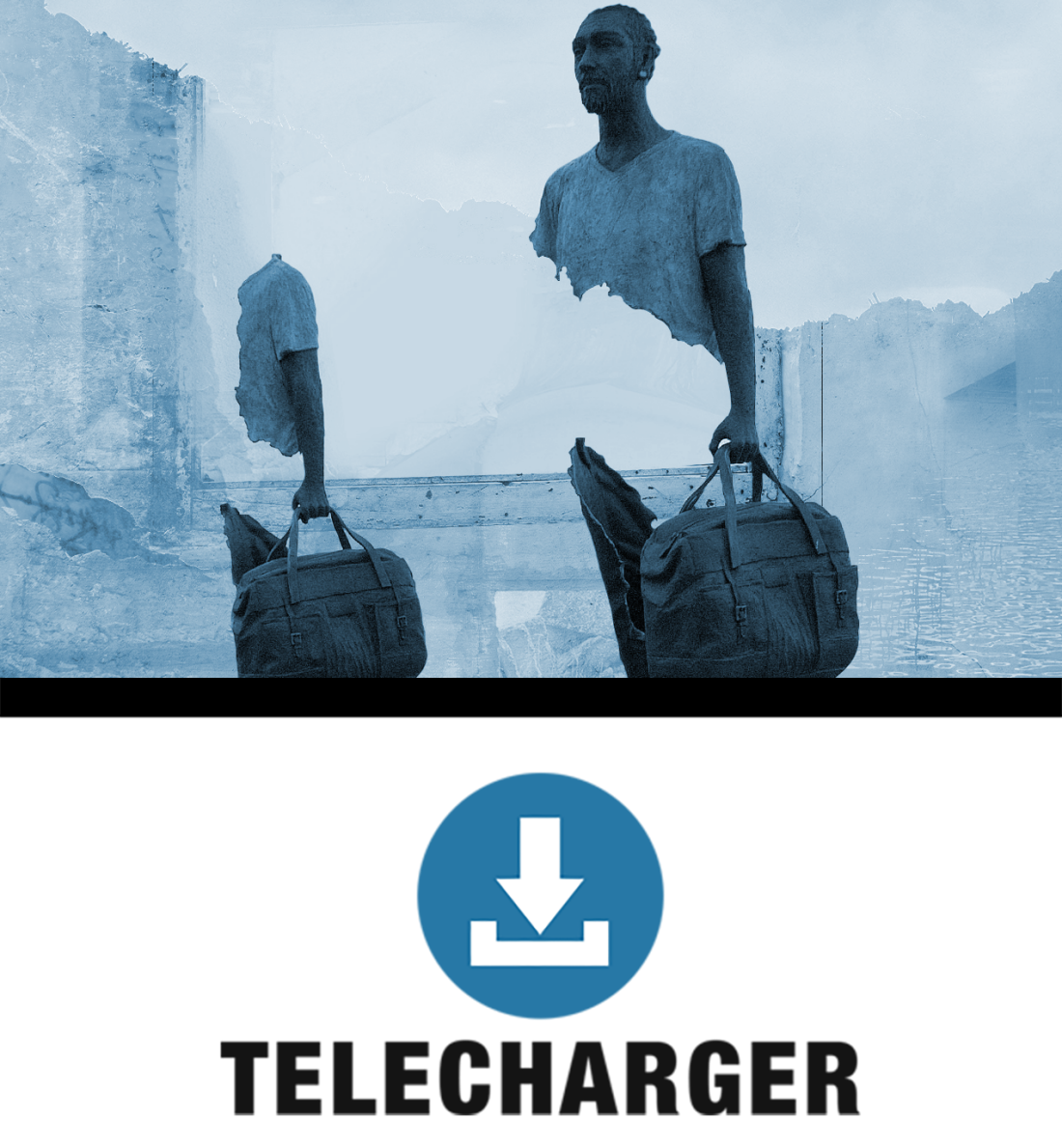
News
OPEN LETTER
10 years of non-reception of exiled people
in Paris and in France
It is urgent to resolve 10 years of an untenable situation: that of non-reception and institutional violence against exiled people.
TRIBUNE
United against inequalities, we refuse the race to the extreme right
The extreme right, whose progress continues more than ever, exploit discontent, resentment, anger...
Collective action
Manifesto for the right of associations to freely choose the causes they defend
Associations are dissolved by the government on the absurd grounds that denouncing an injustice would be to justify retrospectively - or to be complicit in advance - violent acts, even acts of terrorism
AFJD signed the call for freedoms against
far-right ideas
For several months now, we have all observed that the political and social climate in France, as everywhere in Europe and in the world, is increasingly permeated by the far right and its ideas.
Appeal against the proposed law on comprehensive security
We are signing the letter below alongside 105 organizations to oppose the proposed comprehensive security law.
Monique Chemillier-Gendreau
Towards happy days…
"When the danger grows, so does what saves us." (Hölderlin)
April 7, 2020 - In the face of the health emergency, emergency measures are necessary.
Following the rostrum "Never again, let's prepare the next day", the signatories of this petition ask the government to take 4 measures immediately.
Joint declaration on the situation of refugees in Greece - March 2, 2020
ELDH European Association of Lawyers for Democracy & World Human Rights
Press release - October 7, 2019
Reminder - The States General of Migration (EGM) which bring together several hundred collectives and local and national associations, including the AFJD, have been mobilizing since 2017 to make their voices heard in public space.
Adoption of the bill for controlled immigration, effective asylum and successful integration.
Against a liberticide law, another migration policy is possible.
Permanent Peoples' Tribunal
The Permanent Peoples' Court is an opinion court which acts independently of the States and responds to requests from communities and peoples whose rights have been violated.
On January 4 and 5, 2018, the Paris session examined the European Union and member states' policy on migrants.
BOOKS
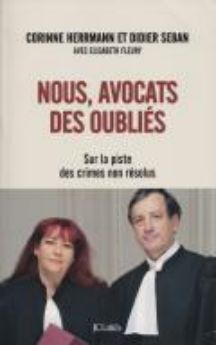
Corinne Herrmann and Didier Seban
with Elisabeth Fleury
Editions JCLattès
Charging of Michel Fourniret in the assassination of Estelle Mouzin (2003), resolution of the murders of Christelle Maillery (1986) and Christelle Blétry (1996), reopening of the cases of the Missing of Isère and those of the Forgotten of the A26, condemnation of the serial killer Emile Louis ... At the origin of these legal victories, a tandem of aovcats devoted to "cold cases", these old criminal cases that we believe - wrongly - definitively buried
.png?t=d01cc0cd_af14_43c3_8f5b_3d80357eff09)
Monique CHEMILLIER-GENDREAU
Régression de la démocratie et déchaînement
de la violence
septembre 2019
Editions Textuel
While the regimes claim it, the idea of democracy is empty today. Reduced to a set of recipes, democracy leaves the field to populist powers who do not hesitate to be favorable to the arming of citizens. What has been missing in democracy as it has been theorized put into practice so far, so that people turn away from it and hand over their destinies to dictators or adventurers ?

Raphaëlle NOLLEZ-GOLBACH
Quel homme pour les droits ?
avril 2015
CNRS éditions
Do all human beings hold human rights ? Isn't the holder of human rights simply reduced to the national? The figure of the foreigner embodies the contemporary figure of the lawless and reveals the dead ends of the theoretical universalism of the man of rights.
.jpg?t=d01cc0cd_af14_43c3_8f5b_3d80357eff09)
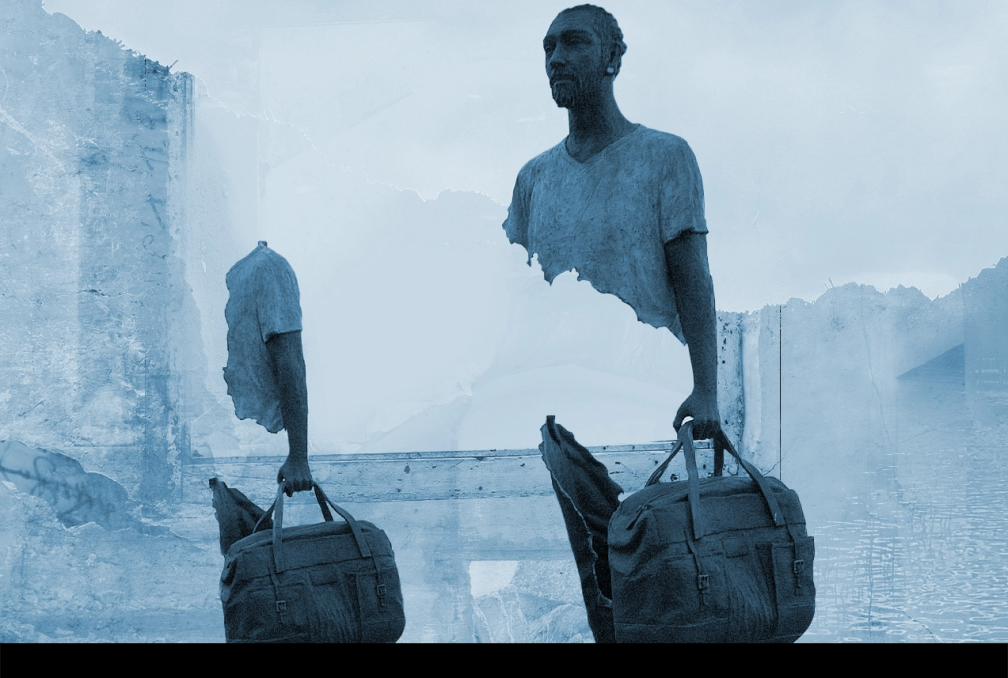
OPEN LETTER
10 years of non-reception of exiled people in Paris and in France
Mr. President,
It is urgent to resolve 10 years of an untenable situation: that of non-reception and institutional violence against exiled people. In 2015, the number of people seeking asylum in Europe increased. This situation, made visible in Paris by the installation of hundreds and then thousands of people in street camps, is called a "migration crisis". A term that we reject, seeing daily on the ground that it is the reception system that is in crisis. For the families, children, women and men who survive in these informal living spaces, the living conditions are harmful to their physical and mental health and sometimes fatal.
Although very visible in Paris, this situation has national repercussions: the vicious cycle of dismantling these camps and "sheltering" operations is accompanied by the relocation by bus of these people to other regions, most of the time without consultation with them. They then suffer a loss of bearings, resources and opportunities in an already precarious context of hypermobility. Furthermore, Paris is often a stopping point before the Hauts-de-France coastline where violations of fundamental rights are innumerable and deadly.
An intolerable state of affairs, which you specifically said you wanted to put an end to when you declared on July 27, 2017: "The first battle is to house everyone with dignity. I no longer want, by the end of the year, to have women and men in the streets, in the woods or lost."
This situation of non-reception is also 10 years of ideological victory of the extreme right because it is structurally designed to avoid a supposed "pull factor". This unfounded theory, largely refuted for years by researchers who work on these issues, proposes an erroneous reading of the dynamics of exile consisting in believing that one would flee persecution and poverty not as a last resort to save oneself but rather to come to Paris to take advantage of a place of accommodation or social security. Successive government teams have thus applied a policy of systematic non-reception and made the life of new arrivals a hell. The passage through the homeless box is mandatory to dissuade from coming, or from staying, all those who come to seek protection in our country.
These last 10 years have been marked by the mistreatment of exiled people in Paris and the Île-de-France region. Various methods of managing the registration of people have been tested: endless queues in front of undersized facilities, particularly during the episode of the "Humanitarian Bubble" at Porte de la Chapelle; the dematerialization of the asylum application desk, which became a paid telephone number in 2017, and which contributes to the invisibility of people exiled from public spaces without facilitating their access to the facilities and their rights. The encampment of exiled people is reflected in the existence of numerous informal living spaces and in particular camps sometimes grouping together up to 4,000 people in Paris and the inner suburbs. The numerous attempts by the authorities to put an end to this phenomenon through a policy of "zero fixation points" have materialized in scenes of repeated violence during and following the dismantling of these living spaces. Like the social cleansing organized on the occasion of the Olympic and Paralympic Games (OPG), the political response has always been more police-based than humanitarian, distorting the initial intended use of the police public service and making expulsions and harassment by the police one of the structural conditions of the daily lives of people exiled in Paris. But this decade has also been marked by several episodes of large-scale support: during the Covid-19 pandemic in March 2020, during the arrival of 3,000 Afghans fleeing the Taliban's capture of Kabul in August 2021, or during the unconditional reception of Ukrainians from March 2022.
This structural choice of non-reception and therefore of the reinforcement of homelessness in our country and its partial and very short-term treatment in a perpetual emergency, legitimized by the use of the term "crisis", seems to be the prefectural method envisaged for many years to come. Indeed, since 2015, the prefectures of Ile-de-France have organized at least 405 operations to "shelter" these camps. However, in a France that said it was "ready to welcome the world" for these Olympic Games and which saw Filippo Grandi, the United Nations High Commissioner for Refugees, receive the Olympic Laurels at the opening ceremony, the camps.
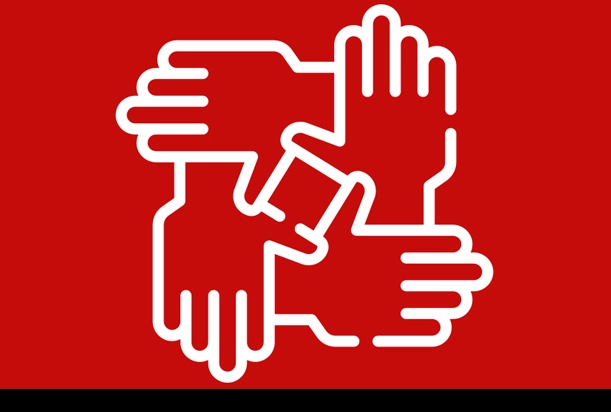
TRIBUNE
United against inequalities, we refuse the race to the extreme right
The extreme right, whose progress continues more than ever, exploit discontent, resentment, anger. Often legitimate anger at the degradation of the social fabric, the arrogance of oligarchic powers, and so many renunciations in the face of social and environmental injustices, the pace and effects of climate change and the accelerated weakening of public services.
But the extreme right maintain this resentment by pointing out scapegoats. Because they need misfortune to spread: they live from it, they feed on it. They need more and more divisions, fragmentation of society, withdrawal from a largely mythified past and a fantasized national identity, confinement in walls and detention centers, barbed borders, rejection of the other.
But the more we divide, the more we weaken. The more we stand up workers against the unemployed vilified as "assisted", farmers against climate defenders, the French against foreigners, city centers against the suburbs, "Parisians" against "the land that does not lie", the "old" against the "young", and the more we aggravate injustices, inequalities, prejudices and discrimination. And in the end all lose... except the nostalgic for an authoritarian power behind which the whole society would walk in step.
The propaganda of the extreme right and those who run after it, masks the real world. For decades, what has threatened democracy and living together, in our country as in many others, has been the massive decline of equality, solidarity, access to rights and protection of the most vulnerable. It is the cult of the all-merchant, the all private, the all paying, with more and more people, social groups and precarious, abandoned or even despised territories.
It is not foreign people who have exploded inequalities and discrimination. It is not the ecologists who have ruined so many farmers in debt and pressured by the agrifood industries. It is not the "young people of the neighborhoods" who have built, abandoned and then allowed the popular neighborhoods to deteriorate where poverty, unemployment and precariousness have been concentrated for so long. It is not the trade union activists who have closed factories or degraded public services.
Of all this, of course, the extreme right says nothing. But we associations, trade unions, solidarity actors and actors, citizens engaged in civil society say today that it is high time to open our eyes. Because the danger is growing, at the gates of a near future: the danger that the hatred of the Other triumphs, the withdrawal of identity, racism, the confrontation of all against all. What would then become of democracy itself?
Yes, it is high time to react. We do not accept that the looting of public health continues between "medical deserts" and hospital distress -, the school separatism of the rich and increasingly expensive studies, housing less and less affordable for the greatest number, the public services that are receding, the territories that are experiencing deprivation, and their inhabitants and their inhabitants abandoned to "each for himself", precariousness and social insecurity.
Do we believe that the constantly successive outbursts of anger "yellow vests", revolts in working-class neighborhoods, anger of farmers happen by chance ? The bad blows to pensions, social housing, peasant agriculture and now unemployment benefits benefit sowers of hatred, entrepreneurs of identity resentment. The soil on which the demagogues of the extreme right push is the bitterness caused by all these regressions despite often very important mobilizations, it is the feeling of an ever more difficult and precarious life.
Can we continue to lose our freedoms, our rights, our hope for a better future for a long time? We know that we don't. There are many who make people live and who also invent, on the ground and in the sharing of everyday life, solidarity, cooperation and sharing that bring this better future. What is lacking for all these energies and commitments to break the vicious circle of extreme right winging is a visible pooling that respects their diversity while combining their strengths.
This is why we, XXX organizations at the heart of civil society, have decided to propose today, in the face of the extreme right and the bearers of hatred, injustice and discrimination, a strong and lasting mobilization against social and territorial inequalities. Because these are the real stakes. Because this is at stake, in the short and long term, the future of our societies and democracy.
And especially because we carry in our commitments, in our daily actions, the conviction that it is the gathering of all those who want more equality, solidarity, social and fiscal justice and respect for all that can reduce the risk of the worst and give us hope in the future. It's urgent, it's necessary and it's possible.
We call on organizations and citizens who share our concerns and values to join us today. We call on politicians who really consider themselves democrats, republicans and humanists whatever their political color to never give in to the deadly ideas of the extreme right and to engage urgently and sincerely in the fight against inequalities, the climate crisis and for the reconstitution of our social fabric. We call on citizens not to resign themselves: not to choose the extreme right to express their anger, not to give up voting to designate leaders who will finally be up to the challenges of our time, whether at the local, national level, or from June 9 at the European level.

COLLECTIVE ACTION
Manifesto for the right of associations to freely choose the causes they defend
Associations are dissolved by the government on the absurd grounds that denouncing an injustice would be to justify retrospectively - or to be complicit in advance - violent acts, even acts of terrorism, that others have committed or will perhaps commit one day in invoking this same injustice.
"Under the guise of denouncing acts of Islamophobia", we read in the decree dissolving the Coordination against Racism and Islamophobia, this association "distills [rait] a message inciting to perceive French institutions as Islamophobic , thus fueling a permanent suspicion of religious persecution likely to stir up hatred, violence or discrimination against non-Muslims ”. Should it be emphasized that the accusation of inciting discrimination against an indistinct group which would be made up of "non-Muslims" is nonsense? Associations are dissolved by the government on the absurd ground that denouncing an injustice would be to justify retrospectively - or to be complicit in advance - violent acts, even acts of terrorism, that others have committed or will perhaps commit one day by invoking this same injustice.
As in the case of the CCIF, the decree also retains comments made by third parties on social networks concerning, for example, the complaint of incitement to violence against the police. This is enough, in the eyes of the Home Secretary, to characterize a "strategy" of the association which would consist in eliciting these comments and then keeping them "voluntarily" online. Likewise, there are comments hostile to Israeli policy - qualified as "anti-Zionist" discourse - which "call for messages with an anti-Semitic content". The trial of intent is accompanied here by the deliberately distilled amalgamation of criticism of Israel, anti-Zionism and anti-Semitism.
In short, an addition of presuppositions, hypotheses and assumptions makes it possible to assert that an association "must be regarded as endorsing" remarks provoking violence or discrimination and that this alleged guarantee is itself sufficient to characterize "acts" of provocation to violence or discrimination, the only ones capable of justifying dissolution.
The silence that accompanies the chain of these dissolution measures is alarming. First because it can be perceived as a tacit assent and pave the way for other similar decisions, henceforth facilitated by the law "reinforcing the respect for the principles of the Republic" promulgated on August 24, 2021. Then because it reinforces the suspicion of illegitimacy that the government puts on the battles waged, in the field of law, against the discrimination suffered by Muslims or considered as such. This silence is basically a way of accepting the invisibility of discrimination and injustice, of accepting that thousands of people are left without support, isolated, denied in the humiliation they experience or the denial of their rights.
To remain silent in the face of these dissolutions and the false pretenses of their motivation is not to see that, tomorrow, the defense of other causes may suffer the same ostracism and the same sanction. Here it is the concept of Islamophobia which we understand should be banned. But aren't we also told that it would be abusive, even defamatory, to speak of "police violence"? Tomorrow, will we be accused of denouncing xenophobia at work in migration policies on the grounds that it is insulting those who govern us and - who knows? - arouse hatred for France and the French in the immigrant population? Likewise, should the expression "crime of solidarity" be banned, on the pretext that aid to migrants is no longer supposed to be the subject of prosecution? Have not the anti-colonial movements been criticized for encouraging unacceptable feelings of revolt? And what about concepts like gender, intersectionality or racialism, the use of which is criticized on the pretext that it would pave the way for "separatism" and "communitarianism"?
To guarantee their survival, will associations have to avoid terms that smell of sulfur, put their analyzes under wraps, refrain from certain methods of action?
We, associations and unions, recall that it is up to us - and to us alone - to decide whether or not we want to denounce and fight, among other forms of discrimination and stigmatization, this particular injustice called Islamophobia.
We declare that we will continue to freely choose the subject of our struggles as well as the terms that we consider relevant to analyze the state of society and to criticize the policies and practices of public authorities.
We demand the full exercise of freedom of opinion, which includes free contradiction and excludes any police of ideas.
We simply mean that freedom of association be respected.
20 November 2021

Communicated
AFJD signed the call for freedoms against far-right ideas
For several months now, we have all observed that the political and social climate in France, as everywhere in Europe and in the world, is increasingly permeated by the far right and its ideas.
Faced with this climate of hatred, racist and attacking individual and collective freedoms, we call for a strong, united and unifying reaction, to reaffirm our common fight against the far right, its ideas, and all those who participate in its spread.
From Bolsonaro to Trump to Orban and Salvini, we are witnessing a racist and reactionary offensive that is particularly worrying for the future of the planet. In France, this racist offensive has as a corollary the proliferation of security, liberticidal and anti-social policies.
This climate owes nothing to chance. The government, and its four lookouts, Darmanin, Vidal, Blanquer and Schiappa, have been providing food for months. From the global security law to the law on separatism through the hunt for Islamo-leftism and the abolition of the Observatory of secularism, this five-year term accumulates the pledges for the far right, by taking its elements language but also some of its proposals.
When you blow on glowing embers and spend your time stirring up hatred, it has real consequences. It can even lead to the worst, as we saw recently with the attack on the Bayonne mosque.
After the invasion of the Regional Council of Occitanie by Action Française, the sacking of a bookstore and the attack on the lesbian march in Lyon by identitarians, the controversies over the alleged Islamo-leftism and the pretext of groups of word between people discriminated against to attack UNEF or to attack Audrey Pulvar, an additional milestone has just been crossed.
In less than 72 hours, a neo-Nazi wanting to carry out an attack on the mosque of Le Mans was arrested, the mosque of Nantes was set on fire, and the Islamic cultural center of Rennes was covered with Islamophobic tags.
A call from factious soldiers, based on the witch hunt, launched by members of the government, is broadcast by the far-right weekly Valeurs Actuelles and is supported by Marine Le Pen without any reaction from Emmanuel Macron or the government. does not file a complaint with justice.
We cannot accept that those who suffer hatred, discrimination, and injustice are today accused of racism and thrown into the past by the far right.
We can no longer accept the direct threats that are now being made to us.
We, political activists, associations, trade unionists and personalities of civil society call for a big demonstration in spring 2021 to say no to the extreme right, to its ideas which are spreading to the government and to defend our individual and collective freedoms. .
We are addressing the associations, unions, collectives, parties who share the basis of this call for them to come together in order to build the conditions for it.
March of 12 June 2021 for freedoms and against far-right ideas
For several months now, we have observed an alarming political and social climate. Allying with the extreme right or adopting one's ideas is no longer a ban. Racist and sexist words and acts in the workplace and in life are spreading. Attacks on social rights and freedoms are on the rise. In this political, economic, social and health context, injustices explode and generate strong social misery.
Several freedom-killing laws organize an authoritarian society of surveillance and control that would prevent information on police violence, which is already too severe. Moreover, while some of these laws stigmatize part of the population because of their religion, others target them because of their militant activity.
We all feel the urgency to build a strong and united response that outlines the alliance of freedoms, work and a sustainable future.
Faced with this climate of hatred, racist and attacking individual and collective freedoms, we have collectively decided to organize on Saturday June 12 a first major national day of demonstration and mobilization which will take place locally.
This day is part of the unitary initiatives which are multiplying. Our trade unions, politicians, associations, collectives and signatories of the appeal have already decided to co-construct this fight over time.

Communicated
Appeal against the proposed law on comprehensive security
We are signing the letter below alongside 105 organizations to oppose the proposed comprehensive security law.
We are opposed to the “comprehensive security” bill. Among the many dangerous proposals in this text, three articles risk limiting the freedom to demonstrate in unjustifiable proportions, a freedom already severely restricted on the ground and again called into question by the national law enforcement plan.
Article 21 concerns portable cameras which, according to the rapporteurs of the text, should equip "all police and gendarmerie patrols [...] from July 2021". If voted, the text will therefore allow the transmission of video streams to the command center in real time. This will allow automated analysis of images, including facial recognition of demonstrators and passers-by, in connection with the 8 million faces already recorded by the police in their various files.
These new powers are not justified by any serious argument in terms of the protection of the population and are in no way part of a doctrine of peaceful crowd management. The main effect will be to considerably facilitate the practices observed for several years in demonstrations, aimed at harassing political opponents in particular by placements in “preventive police custody”, by the prohibition of joining the procession or by arbitrary arrests. not followed by prosecution. These illicit practices will be all the more easily generalized as the identification of activists will be automated.
Article 22 would allow drone surveillance, which the State Council says is currently banned. Here again, the police have produced no argument demonstrating that such surveillance would protect the public. On the contrary, we were able to observe during demonstrations that drones are above all used to direct violent strategies contrary to the freedom to demonstrate: swimming, gas and tear gas canisters in particular. As with mobile cameras, facial recognition will again identify political activists.
Clearly, the massive deployment of mobile cameras and drones, coupled with already existing fixed cameras, would result in a generalized surveillance capacity of public space, leaving no room for the anonymity essential to respect for the right to privacy. and can only have a coercive effect on freedom of expression and demonstration.
Article 24 aims to prevent the population and journalists from disseminating images of the face or any other element of identification of a police officer or military gendarmerie. In other words, the images of the violence committed by the security forces can no longer be broadcast. The only effect of such a provision will be to increase the feeling of impunity of the violent police officers and, thus, to increase the violence committed unlawfully against the demonstrators.
We call on parliamentarians to oppose these three provisions which reduce the fundamental freedom to demonstrate for the sole purpose of silencing the population and better monitoring them.
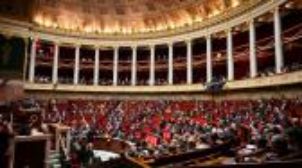
Monique Chemillier-Gendreau
Towards happy days…
"When the danger grows, so does what saves us." (Hölderlin)
An unknown virus has been circulating around the planet since the start of the year. Deadly and invisible danger, forcing us to move away from each other as if we were dangerous for each other, it has turned the depths of society like we turn a glove and it has exposed what we were trying so far to hide. No doubt it causes a significant number of deaths and it highlights the limits of the health systems of developed countries, including the richest among them. No doubt, elsewhere, he exposes the populations of poorer countries to extreme danger, forcing them to protect themselves from fulfilling an impossible obligation, confinement. But this is only the surface of things.
The upturned glove shows the perilous path in which the world has been engaged for decades. By putting hospital services under budget constraints, where they were developed, and neglecting them where they are insufficient, panic-stricken politicians found themselves caught short by the arrival of the pandemic. In France, the glaring preparation for this type of event, the guilty liquidation of the reserve of masks, the relocation of the pharmaceutical industry with the sole reason of seeking greater profits, the weakness of the means of scientific research, put the government in a situation of improvisation. By taking the path of containment from which he does not know how to get out, he has embarked on the path of a radical challenge to public freedoms. Having deprived himself of other means of protecting the population, he benefits from a forced acquiescence of the latter. In the event that this acquiescence is lacking, a moralizing and guilty discourse is deployed. And yet, everywhere, countless initiatives contradict individualism fostered by the economic and social model and testify to the permanence of brotherhood between humans.
But the upturned glove also makes it appear, at least to the most lucid eyes, that the answer to the challenges facing humanity as a whole at the moment, cannot be an addition of national policies, even less if these policies try to be conducted in a vacuum. There will always be a part missing, that of the community of humans who can no longer refuse to see themselves for what it is: a community of destiny, what Hannah Arendt called a political association of free men.
So, behind the health crisis which is in the foreground, with the economic crisis which is starting and the ecological catastrophe in progress, it is a crisis of civilization which finally emerges. The world entirely dominated by the capitalist system which continues to widen inequalities and destroy nature, is today a drunken boat which has no other horizon than its sinking through unsuspected violence.
If there is still time to take control, then this unprecedented earthquake is the opportunity that the world must seize to finally break with its largely initiated destruction and invent an entirely different society. So, having conjured the terror of the unknown, people will dance for joy over the rubble of the old world that threatened to take it away.
For that you need :
- do not cheat with the findings that need to be made;
- measure the risks of a crisis exit geared to a return to the previous situation or to other abuses;
- seize this opportunity to lay the radically different foundations of a just and viable world society.
I - The findings.
1. The two elements that were visible from the start of the pandemic relate to the hospital crisis and the lack of control over pharmaceutical production and sanitary products within States.
With regard to hospitals and to take only the example of France (country which remains among the most favored in this field), liberal logic has led for several years to the closing of hospital beds and to pricing to activity leading to a continuous restriction of means. The managerial logic of companies has contaminated the public sphere and made it lose sight of its purpose, better health for all.
As for the pharmaceutical industry, a key element in protecting the health of a population, it has been delivered to the interests of large financial groups and relocated almost entirely to countries with low labor costs.
2. The crisis cruelly brings to light the inequalities that mark all societies. They are not of the same nature depending on whether one has solidarity systems like those put in place after the previous world disaster (the War of
1939-45), or that we are in societies where nothing like this exists, or for the sole benefit of a small number, which is the case of the United States of America, as of all so-called developing countries. These inequalities are today gaping at the risk of illness and death. They will worsen in the coming months with the economic consequences of the pandemic.
3. This pandemic also revealed the wear and tear of democracies. The misdeeds of too much centralism and of a vertical system of power in a country like France, appeared with the uniformity of the measures taken on the whole territory. Necessary in the most affected areas, they seemed inexplicable in other regions less affected by the virus. A decentralized state like Germany has faced the pandemic under better conditions. In many countries, the loss of credibility of rulers accompanied the growing dissatisfaction of peoples with the representative forms of democracy which are exhausted.
4. States faced with a situation for which they bear a large part of the responsibility, implement economic support policies, directed either towards individuals or towards companies. But these emergency measures leave questions unanswered: How far will this support go, especially when the balance sheet of the crisis can be drawn up and it will lead to bankruptcies in large numbers? Will it be sustainable support for vital activities, as they appeared so clearly during this crisis, or the oxygenation of financial markets, without any obligation being placed on them to maintain and develop these vital activities? How will the immense debt in which the States find themselves be financed in the long term ?
5. The virus has shown its ability to spread from one end of the Earth to the other. And the pandemic has crudely revealed the gap between the economy deeply committed to globalization, in particular with the relocation of essential productions conducted on the basis of factors of pure financial profitability and without taking into account social and environmental costs generated, and politics remained in the hands of national states. The weakness of the European Union in this crisis, but also, less visible, the deeper and more radical failure of the system of International Institutions, the United Nations and the satellite organizations which depend on it (including the World Organization health), give a blunt view of the deadly imbalance of a globalized economy without the support of political institutions capable of imposing general well-being and protection of the environment. Thus, the renewal of international cooperation, based on the need for global solidarity among all humans, will undoubtedly be at the heart of future discussions.
6. This drift of the economy out of political control, led for several decades capitalism to satisfy the requirements of return of the holders of the capital, which appear unlimited. Capitalism, which was first a market capitalism before becoming industrial in the 18th century, then financial in the 20th, has entered a new phase, that of digital capitalism. It is clear that he intends to seize the opportunity of this crisis, to consolidate this mutation and increase the rent he gets from activities in this field and now impose just-in-time work everywhere. The question is then to know if the system will continue on its way by dragging humanity into a deadly dead end, or if a new political project of the right scale and with the right objectives can still avoid sinking.
7. The argument used to degrade public services in the countries where they were solid, and the inability to endow them with societies where there has never been one, is, uniformly, that of the lack of public money available for this purpose. But nothing State has failed to put in place an effective policy against corruption and against tax evasion, these global scourges. We know, however, that it is in the fight against these evils that the possibility of freeing up considerable sums for public policies nests. Why has the European Union, which shows its will to fight against tax havens, failed to eliminate those who depend on the United Kingdom when it was still a member of the Union, or those who are in inside the Union (Luxembourg, Ireland, Malta, Cyprus) ?
8. At the same time, the States, without exception, including those among the poorest, have developed considerable military budgets. In a significant part of the world, including in emerging countries, the economies are militarized economies. In many countries, the police are themselves militarized. This importance increasingly sophisticated armaments available to all armies, maintenance of conflicts to which the rest of the world has become indifferent despite the immense distress inflicted on the populations (Syria, Yemen, Mali, among others). Disarmament, however, on the agenda of the United Nations General Assembly, or the general regulation of armaments, laid down by the Charter of the United Nations as one of the responsibilities of the Security Council, 2 have never been taken seriously. The five states, permanent members of this Council, are the largest arms dealers. And international humanitarian law developed through the Geneva Conventions and many other texts remains incantatory in nature. Finally, it must be denounced in these considerable military budgets, the place of nuclear weapons which are so fiercely held by the powers that claim their exclusivity. Object of a political consensus, these weapons absorb a considerable part of the public budgets (37 billion Euros are planned in France for the modernization of these armaments). Unlike a shared doxa, these weapons do not provide security for the world. They put him in extreme danger maintenance of conflicts to which the rest of the world has become indifferent despite the immense distress inflicted on the populations (Syria, Yemen, Mali, among others). Disarmament, however, on the agenda of the United Nations General Assembly, or the general regulation of armaments, laid down by the Charter of the United Nations as one of the responsibilities of the Security Council, have never been taken seriously. The five states, permanent members of this Council, are the largest arms dealers. And international humanitarian law developed through the Geneva Conventions and many other texts remains incantatory in nature. Finally, it must be denounced in these considerable military budgets, the place of nuclear weapons.
9. Finally, the most important observation to be drawn from the current chaos is that of the link between this apparently sanitary crisis and the ecological catastrophe which is its source. Sensitive now to the perceptible climate change in the lives of individuals, our societies are less aware of the upheavals of biodiversity. And yet, the disruption of ecosystems and natural habitats promotes the transmission of infectious agents by depriving viruses of their usual hosts or by bringing them closer to urban concentrations. Monocultures and industrial livestock use an ever-reduced number of varieties and strains, spreading genetically very similar populations on the planet which increase the probabilities of mutation of pathogens. Massive use of pesticides and antibiotics exposes at the risk of selecting forms that are resistant or tolerant to the means of control available. And the current pandemic was unpredictable only for governments who were deaf to all warnings, because it was not for little researchers listened to, working on nature protection and land use change (deforestation, extension of agricultural land or urban and peri-urban areas, industrial livestock farming) and worried about the destruction of the self-regulation of ecosystems. The problem is therefore not only to contain epidemics, but also to obstruct the processes allowing their emergence.
II - The risks opened during this pandemic.
1. The first and undoubtedly, the greatest of these risks, is that of a resumption of the course of things as they went so far, that is to say a race for globalization (to be distinguished from globalization) without brake or control. It is then to run after the same productive, polluting and unsustainable economic model, the same international division of labor, the same culture of consumption, the same austerity for public budgets, with the continued deterioration of public health services. and education, the continued restriction of budgets dedicated to research, housing, transport, culture, the same more or less underhand attacks against social rights, the same enthusiasm for public / private partnerships (PPP) with their disastrous consequences in the long term for public finances, the same submission from states with interests in world finance, the same blurring of the distinction between what is in the general interest and what is under the logic of profit, and for the people who their position in the production chain has allowed to emerge underdevelopment, the same frenzy of consumption. The deployment of digital industries and the extension of their field following the confinement of populations (telework, distance education, population control), will lead to the development of multinationals in this area, and their domination over lives, already noticeable before 2020, will quickly increase. The consequences of these trends are known. We can therefore paint the picture of the company that would continue in this direction: resumption of production at carbon cost high, mass tourism, unbridled international trade following production of increasingly relocated, intensive agriculture, deforestation, inertia in the face of attacks to the environment, growing inequalities, increasing migration and repression of migrants, decline in culture, decline in science and return of beliefs, loss of freedoms and increased control of populations, operations high-cost military and environmentally disastrous.
2. The second risk is already in germ in our societies. It is that of an exasperation of national selfishness with a strengthening of protectionism and the sovereignty which accompanies it. These terms are very confusing, because they suggest "pure" situations where reality is always mixed. Even under the dominant logic of the World Trade Organization, the aim of which is to promote ever greater opening of markets, States have continually cunning to protect their savings. The recent poster for more protectionism is only the admission of the failure of any search for the mutual interest of the people. Coupled with the concept of sovereignty, the return of favor for protectionism is dangerous only if it is thought from the exclusive interests of one nation, without taking into account that of others. We know what led these doctrines in the past with the competition of companies until their confrontation. Today, panic-stricken governments protect their supplies of medicines and health supplies, sometimes shamelessly seize those of others and turn their backs on essential international solidarity.
We have forgotten that it was the currents of solidarist philosophy which, after the First World War, gave birth to a first attempt at international organization with the League of Nations. This sketch did not survive the crisis of the 1930s and the frenzied militarization that this period experienced, and it could not prevent the confrontation of the Second World War. Then, with the creation of the United Nations in 1945 and of specialized organizations, it was believed to be building a more united world with multilateral mechanisms which were thought to guarantee peace and economic and financial regulation. On a European scale, we went further by imagining an integration which made it possible to remove the specter of intra-European wars. But at these two levels, European and global, he missed for these organizations to become representative of genuine political communities. The political space remained national.
And the error was to coexist the concept of sovereignty understood not as the legitimate autonomy of a people, but as the absolute independence of a power, with the project of building peace on the prohibition of the recourse to the war and respect for the norm of international law. Maintaining this ambiguity has led to the weakening of the United Nations. To appeal to the return of sovereignty is to bury multilateralism, with the faults that brought it to failure, but also with the hope that it had announced.
3. The third risk, linked to the previous one, is that of opening the door to modes of governance by fears, with all the wounds that this causes to democracy. The pandemic, part of the development of social networks, results in a weakening of information. Become uncertain, it promotes collective anxieties. These anxieties are the best ground to allow the temptations of the powers to harden to flourish. The concern for security then takes precedence over that of freedom. And frightened spirits do not understand that the one and the other are linked. The whole world thus bowed in a few weeks to the deprivation of one of the first freedoms, that of coming and going. The need for emergency measures comes to point for all the executive powers galvanized by military metaphors.
III - The foundations of a radically different society.
A global society determined to avoid a threatening collapse must, in order to survive in a healthy and lasting way to the current health crisis, operate a complete conversion. Long and difficult, it can however be fruitful if the premises are installed securely. They will be if an agreement is built in the depths of societies based on principles considered intangible and institutions capable of implementing them. These principles will have to be debated and then shared at different levels, national, regional, universal. Become common, they will allow humanity to enter the path of a political community based on a promise, that humans make among themselves to respect these principles for the benefit of all. Institutions must be liberating in nature, so as to offer everyone the guarantee of having access to the fulfillment of the promise. The whole must form a new Global pact allowing to renew the idea of safety in a democratic conception of the social life, and that at the national level as at the world level.
A - Overriding principles.
1. Consider human rights as set out in the Universal Declaration of Human Rights and in the two United Nations Covenants for Civil and Political Rights and for Economic, Social and Cultural Rights as intangible and as justiciable before all national and international jurisdictions. Give the same force to the Geneva Conventions and to the other texts forming humanitarian law in the event of armed conflict, in particular the Treaties providing for the prohibition of certain weapons.
2. Because there are no rights for some, without obligations for others, to promote without delay a Universal Declaration of Human, Social and Environmental Responsibilities which would be addressed to States, businesses, organizations international and natural persons. It is a question of not being satisfied with the timid movement started to make recognize the social and environmental responsibility of the multinational companies, but to imply all the actors completely in the pursuit of a general world interest. This Declaration would serve as a universal normative reference for all the courts seized of requests for reparation from victims of fundamental rights.
3. Thinking the interests of each people in the light of a global interest and considering the protection of this common interest of all peoples as the fundamental principle of world society, putting the imperatives arising from the law of market in an exceptional position. This should lead, for example, to favor the shortest supply channels for food or essential products. This involves reversing the previously dominant paradigm and reintroducing business law into a hierarchy of standards prohibiting it from contravening superior public law rules, those aimed at the well-being of individuals and their protection as well. than that of nature.
4. To take note of the interdependence of all peoples and of the need for relations between them to be governed by international law allowing the protection of the weakest and imposing themselves on the strongest whose sovereignty must bow to the demands of world community.
5. Replace competition with mutual aid, and consider the activities contributing to the common good (health protection, general access to medicines, water, environmental protection, public scientific research, access for all to education, decent housing, transport, culture, reliable information), as part of the protection of the general interest. The organizations concerned, at the international level (ILO) as well as national, must review the hierarchy of the trades (and the related remunerations) according to the common utility.
6. Implement disarmament on the basis of the principle formulated in Article 26 of the Charter of the United Nations (see para. 8 of the findings) and define what is the minimum human and economic resource in the world that should be '' allocate to the armaments which remain necessary, but only in two cases: that where a people is in a situation of self-defense or when it has to take part in collective security operations.
7. List the industries polluting or dangerous to human health and the future of mankind and nature, and ban them without the possibility of delaying. Orient all international land transport, passengers and goods, to rail. Set up retraining policies economic to protect all those who should therefore give up their jobs and engage in new activities.
8. Reduce inequalities by the universal application of principles of fiscal justice binding on all States and leading them to peak income as soon as they deviate from a ratio of 1 to 5 between the most low (these are guaranteed incomes) and the highest incomes.
9. Create a Global Health, Social, Ecological and Peaceful Solidarity Fund financed by international fiscal measures relating to financial transactions, the income of multinationals and polluting activities. He would goal :
- to ensure conditions for the placing on the world market of essential medicines likely to allow access to all ;
- to support the professional retraining policies necessary in application of principles 6 and 7 ;
- to help States in which populations have benefited from offshoring and which will suffer from a return to short production circuits ;
- to promote social rights in countries where they are insufficient or even non-existent, so that they align with the most favorable standards ;
- to support each State which is led, in order to protect the general interest of its people, to carry out nationalizations or take public holdings.
10. In order to ensure the independence of political leaders in their decision-making, and free them from the obsession with re-election, make the rule that no political mandate at national or international level can be renewable, a universal standard.
B - The Institutions.
One can only sketch here what would be institutions adapted to the project of a different world. A collective reflection will make it possible to specify it further. But he will have to register in the following directions :
1. Act the failure of the United Nations to be representative of the whole of humanity and the impossibility of reforming them because on the one hand, of their bureaucratic drift, on the other hand of the lock put in the Charter to any real reform by the necessity that it is accepted by the 5 permanent members of the Security Council. And, considering that in spite of positive achievements, they no longer accomplish today the goals for which they were created, foresee in the long term their dissolution when an Organization better adapted to present times will have been set up.
2. Work on the creation of a new universal political organization (which could be called the World Peoples Organization) which would implement a new Global Compact whose objectives would be peace, the safeguard of nature and the guarantee of social rights universal.
This Organization must ensure :
a) recognition of the different national communities and their autonomous competences insofar as these are compatible with respect for international law5;
b) a peacekeeping mechanism, inspired by that created by the United Nations, but entrusted to a Security Council composed of members fully equal to each other (20 or 25) elected every 3 years by the Parliament of the Organization ;
c) compliance with arms regulations as determined by the Security Council and the establishment of a truly international and integrated intervention force capable of giving meaning to the concept of collective security ;
d) the non-derogable nature of international law by the authorities of the various States. This international law contains the first core of human rights as referred to Article 1 of the Principles above, to which will be added the Universal Declaration of Human Responsibilities referred to in Principle 2, as well as the standards drawn up by the World Parliament ;
e) the democratic nature of the new organization and in particular the procedures for developing new international standards. These procedures will be based on a principle of bicameralism, the bicameral World Parliament being composed of an Assembly representing the States and a second Chamber representing social forces proper6. All major international texts in the social or ecological field must be voted on by these two assemblies, provided that they have previously received the assent of an ecological and social council. Half of this Council will be made up of members appointed for their expertise and half of citizens of the world drawn by lot.
3. Review all the specialized agencies of the United Nations system which have become the battleground of rivalries between great powers and international lobbies. Reintegrate a World Trade Organization into the universal system (the current WTO is not part of the United Nations system) and subject it to the same conditions as the other specialized agencies: these must have real regulatory powers exercised in accordance with democratic procedures, the assemblies representing the States, being there also doubled assemblies representing social forces of the sectors concerned by the aims of the Institution; procedures will be put in place to avoid conflicts of standards between the different institutions, always ensuring the supremacy of the norm most favorable to social and environmental freedoms and rights.
4. Consider the large regional institutions already existing (African Union, European Union, Organization of American States, and other regional organizations) as the institutional relays of the Universal Organization and put in place procedures allowing consistency between their policies and goals of the Universal Organization.
5. Strengthen international justice, by :
- making the jurisdiction of the International Court of Justice compulsory (currently, States are not obliged to accept this competence) and of the International Criminal Court (no State could by refusing to accede to its statute, ensure that its nationals are safe from prosecution before this body);
- creating a World Court of Human Rights with compulsory jurisdiction for all States on the model of the European Court of Human Rights;
- creating an International Constitutional Court which would be able to assess the conformity of the Constitutions of States, their laws and their administrative practices in relation to their commitments through the International Covenants on Human Rights.
Sending.
The principles defined above as well as the outline of the renewal of international institutions, are the conditions of the guarantee that there will be no turning back. No doubt some will qualify this project as a utopian. But the report of strengths is only unfavorable in appearance. The curse of Covid 19 will turn into an incredible opportunity if it is an opportunity for the peoples of the planet in all their components (essential and underestimated professions, essential migrant and / or seasonal workers, unemployed victims of factory closings by greedy shareholders, refugees condemned to non-life in camps, young people deprived of a future, inhabitants of shantytowns and favelhas, oppressed minorities) to arise in a global public space of which they are the citizens to say which world they refuse and which future they demand. So, they will confirm that utopia is not the impossible dream of unbridled imaginations, but rather a way of drawing what has not yet happened and that it is in their power to bring it about.
And this document does not aim to provide a completed project, but to open the debate…. With the hope that all who seize it will know how to give it life.
Paris, 39th day of confinement

April 7, 2020 - In the face of the health emergency, emergency measures are necessary. Following the rostrum "Never again, let's prepare the next day", the signatories of this petition ask the government to take 4 measures immediately.
- Immediate cessation of activities not essential to deal with the epidemic.
- Requests from private medical establishments and companies to urgently produce masks, respirators and all the equipment necessary to save lives.
- The immediate suspension of companies' payment of dividends, share buybacks and bonuses to CEOs.The decision not to use the 750 billion euros from the ECB to fuel the financial markets but only to finance the social and ecological needs of the people.
It is not then a question of reviving an economy which is deeply unsustainable ecologically and socially! We ask that long-term public policies be undertaken without further delay so as never to relive this :
1 A development plan for all public services
2 Much fairer and redistributive taxation, a tax on large fortunes, a tax on financial transactions and a real fight against tax evasion.
3 A plan of reorientation and relocation in solidarity of agriculture, industry and services, to make them more socially just, able to meet the essential needs of the populations, to respond to the ecological crisis.
Let’s mobilize now and meet on the "next day" to reinvest in public places to rebuild together an ecological, social and democratic future that breaks with the policies being pursued.

Joint declaration on the situation of refugees in Greece -
March 2, 2020
The signatories are aware of the recent decision of the Greek National Security Council to increase border deterrence measures to the maximum level, to stop registering asylum requests for one month and to return to Turkey anyone trying to enter Greece illegally, following the announcement by the Turkish authorities to no longer detain refugees at their borders.
The Greek Prime Minister maintains that these measures are taken in application of Article 78.3 of the Treaty on the Functioning of the European Union - which however does not authorize unilateral decision-making.
These statements take place against a background of massive human rights violations denounced on all sides in the treatment of asylum seekers who are held in overcrowded hotspots in the Aegean islands, whether in terms of access their basic needs (decent housing, hot water, electricity, food, heating, hygiene, health, etc.) or access to the law (access to a lawyer, to fair proceedings, to effective remedies against detention measures or distance…).
The signatories strongly condemn any violation of the fundamental rights of those seeking asylum in the European Union. In no case does the protection of the external borders of the European Union allow the Member States of the European Union to be relieved of their obligations under the Charter of Fundamental Rights of the European Union, the European Convention on the Rights Human Rights or the 1951 Geneva Convention on Refugees, which prohibits attacks on the right to life, the submission of individuals to inhuman or degrading treatment and the refoulement of asylum seekers. Neither the suspension of the registration of asylum requests, nor the practices of pushbacks, nor expeditious returns to Turkey, nor confinement in overcrowded camps without access to basic needs and without access to effective remedies are not compatible with international human rights law.
The signatories wish to recall that the European Union "is founded on the indivisible and universal values of human dignity, freedom, equality and solidarity; it is based on the principle of democracy and the principle of the rule of law ", as stated in the preamble to the Charter of Fundamental Rights of the European Union.
The signatories invite
• the European institutions, within the framework of the application of article 78.3 of the Treaty, to take measures for the distribution of applicants for international protection - both those arriving and those already staying in overcrowded camps -, with respect the principle of solidarity and dignity, accompanied by sanctions (financial and judicial) for recalcitrant States which endanger the rule of law ;
* the European institutions to apply Directive 2001/55 / EC specifically provided for in the event of a massive influx of displaced persons, so that they can benefit from temporary protection.
• the Greek and Turkish authorities to cease all measures endangering life and human dignity or aimed at using force against displaced persons.
• All parties involved in respecting human rights and the rule of law.

On Monday October 7, 2019, the Estates General of Migration organized a press conference in reaction to French political news.
They wanted to rule on the immigration debate requested by President Emmanuel Macron in Parliament, scheduled for the afternoon in the Assembly. The speakers presented their fears and expectations, recommending to the deputies to take cognizance of the realities on the ground.
The speakers presented their concerns regarding the proliferation of obstacles and attacks on the rights of exiles as well as the tightening of entry conditions, particularly with regard to announcements made by the government in anticipation of the debate.
Speaking to parliamentarians, the speakers corrected preconceived ideas and other erroneous figures that can be heard during the debates, as well as certain false information often put forward by the supporters of a restrictive policy of asylum and the reception of exilesLes acteurs et actrices de terrains ont insisté sur le contexte tendu dans lequel évoluent les associations de solidarité, au contact de personnes migrantes dont le quotidien est traumatique. The hardening of speeches and laws have psychological and physical consequences on exiles, consequences of which parliamentarians are encouraged to come to know on the ground.
The representatives of the organizations also recalled the recent publication of the Notebooks on the unacceptable and the alternatives which list the findings and proposals of citizens in solidarity with the reception practices reserved for migrants in France.

The bill for controlled immigration, effective asylum and successful integration was adopted by parliament on August 1, 2018. Despite some developments since its presentation in February, it remains a regressive text whose spirit is in line with policies that have failed for decades. Alternative solutions do exist, however, as demonstrated by the manifesto of the Estates General on Migration.
Despite the declared will of the government and its legislative majority to make it a text combining "humanity" and "firmness", the examination of the content of this bill quickly reveals that it is the second that has took precedence over the first. Between the numerous hardenings (restriction of the conditions for granting French nationality to Mayotte, lengthy administrative retention period, non-suspensive remedies for certain people, etc.) and the multiple missed appointments (absence of prohibition of confinement for minors or even maintaining the "solidarity offense"), this bill will further jeopardize migrants.
The text, prepared without consultation with the organizations present on the ground, is denounced by actors as varied as the employees of the National Court of Asylum Law and the Office French organization for the protection of refugees and stateless persons, but also the Defender of Rights, the National Consultative Commission for Human Rights or the Council of Europe Commissioner for Human Rights.
Faced with a government that works alone, the members of the Estates General of Migration have embarked on a citizen process to defend an alternative migration policy that respects fundamental rights and the dignity of people.
For more than 10 months, more than 10,000 of us, from 1,650 associations and collectives, have worked together to collectively reflect on concrete proposals based on experience in the field. At the end of May 2018, we adopted the "Manifesto of local assemblies assembled for the 1st plenary session of the Estates General on Migration". Rather than trying to resolve a "migration crisis" that does not exist, we defend a number of principles essential to a long-term migration policy: access to fundamental rights for migrants; respect for the effective right of asylum; freedom of entry, movement and installation in European space; equality of rights between French people and foreigners.
The adoption of yet another law based on closure and rejection does not change the determination of the members of the States General of Migration: because the humanity of tomorrow is built with the reception of today and against drifts stemming from current migration policies, we will continue to advocate for a policy of openness which places respect for rights at the center of concerns.

Joé Nordmann, peace activist.
Symposium of October 19, 2018.
Monique Chemillier-Gendreau
Joé Nordmann’s action for peace has been one of the threads of his life, one of the drivers of his action. Let me first say a word about the reasons why I am here and the context in which I have worked with him for a long time. Please forgive me if this talk is going to be subjective enough and necessarily selective.
In the early 1970s, I was teaching international law at the University of Reims. Some of us were trained by Charles Chaumont, an atypical figure in the Faculties of Law, who engaged us in critical thinking and trained us in the subtleties of dialectical reasoning. It was a moment of strong ideological cleavage (it was not a question of "at the same time" which dominates today's politics) and the debates were very lively around international relations and the development of international law. We then organized meetings called the Reims colloquia, around the major questions of international law. They lasted two decades. Charles was very close to Joé Nordmann whom he had known in the Resistance and Joé, this legal practitioner, readily participated in our often theoretical debates. He was president of the AIJD. This is where I made a great friendship with him. I was a member of the board of directors of this association for several years. And I also represented the AIJD with UNESCO in the 1980s. I will discuss below some of the actions in which I participated in the title of the AIJD.
For those who have not had the opportunity to know Joé Nordmann, I will add a word here to portray him. He was a man of extreme complexity but incredibly simple. For the sake of complexity, it will be said that this atheistic Jew, firmly inserted into his lineage of Alsatian Jews, was not indifferent to metaphysical questions. He was a man of action, the profession of lawyer suited him perfectly. But he was thirsty to feed on doctrines and theories. Furthermore, born bourgeois, he was very sensitive to all the suffering, especially that caused by wars, dictatorships, inequalities. Sportsman, he loved adventure and went to seek it all over the world. For simplicity, I would say that he never put himself forward, that he had easy contact, that he could in his distant missions, share a very frugal life. His resistance had remained very great despite the age. He held firm in the marathons represented by the IYDD meetings where we spent the nights trying to work out motions that were not found. But he was still leaving the presidency at some point in the afternoon when someone had to take it over so he could take a short nap. And it happened to me, having come to prepare these meetings in his office, to see him lying on his back on the floor, explaining to me, while continuing the discussion, that it was the means of treating his pains . His business was very pleasant and his journey can inspire us in many ways.
I must speak here of his relation to peace. This was absolutely central to his action. But here I will distinguish peace as the primary objective and then the secondary, but essential conditions of peace, conditions of which he had been able to measure the importance.
I - An action entirely oriented towards the refusal of war.
Joé Nordmann started his militant life by joining the Secours Rouge International in 1933. He attended the Reichstag arsonists' trial in Berlin. Young lawyer, collaborator of Vincent Auriol, he had gone to support anti fascist militants in the different countries where the brown plague settled. He had taken all kinds of risks during the war which he recounts with lightness and humor in his memories. Immediately after the war, his presence at the Nuremberg trials will be decisive for the rest of his career and for this central element in his eyes, which was the introduction into French law of the crime against humanity. But of that Alain Lévy will speak after me.
The fight for peace, Joé Nordmann, knew it to be decisive at the end of the war. He was steeped in his western culture and his French patriotism, but also still full of reverence for the communist system for which he had not yet taken a critical distance. He was therefore particularly enthusiastic about this moment of grace which was the victory of the Allies. It is true that apart from the vanquished, the whole world celebrated the same values. He wrote in his memoirs: "The contact between the Soviet and American fighters on the Elbe in the spring of 1945, the warmth of their handshakes, the enthusiasm of their hugs, had demonstrated a common desire to resuscitate peace and bring down fascism ”(p. 225). But he knew that enthusiasm can be short-lived if the foundations are insufficient. It was then that the idea of an International Association of Jurists was born. He himself will say that it, even more than the Peace Movement, was a child of the Second World War.
Circumstances did the rest. In September 1945 he was sent by the Ministry of Justice to New York to lecture on the French Resistance. He spoke before an audience of lawyers, those of the National Lawyers Guild who was then one of the pillars of the AIJD. It was then that he became friends with David Popper, one of his American colleagues, and they decided together to engage in jurists a reflection without borders on peace and freedom. Joé liked to recall this Franco-American origin of the Association, especially when later he often had trouble leaving with the Soviet delegations which sought to impose their views.
But it is in Nuremberg that things will take shape. The trial had a decisive influence on Joé Nordmann's conception of peace. Nuremberg was the first introduction of law into the record of a war on the part of the allies who embarked on this judicial adventure. We have to compare this with the historic moment when the United Nations was created, which imposed a ban on the use of force. These two significant events represent two turning points compared to previous centuries during which war was a right of the sovereign state and where the means of war were barely framed by low standards. And now unexpected advances are made possible by the cooperation then established between the various allied nations beyond their political or ideological differences. The hope is immense. Obviously, today we are rightly bored or disappointed The United Nations, which has failed to reform boldly, remains stuck in desolate sluggishness and it took half a century for Nuremberg to inspire the creation of an international criminal court, which is struggling to impose itself. In this laborious context, it is hard to imagine the complicity that exceptional circumstances had woven between Stalin, Roosevelt and Churchill. It had enabled unblocking which is no longer found today to give new impetus to international institutions.
It makes it difficult for us to imagine the strength of hope that reigned then. At the beginning of 1946, Joé Nordmann, fortified by his first positive contact with New York lawyers, made contacts in Nuremberg. He trains one of the members of the French prosecution (Charles Dubost), an adviser to the Soviet delegation (Traïnine) and a collaborator of the American attorney general (who was Telford Taylor). This is enough to get things started. In December 1946, the constituent assembly of the International Association of Democratic Jurists was held in Paris. It brings together delegations of lawyers from 16 countries, chaired by Henti Teitgen, Keeper of the Seals. Nordmann is the first secretary general and René Cassin, tipped, accepts to be the first president.
AIJD was going to be, in the eyes of Joé, a tool promoting peace. But the peace, freshly recovered, was overshadowed by the existence of nuclear weapons. Joé was then one of the initiators of the Stockholm Appeal, on behalf of his young Association of Democratic Jurists. Under this name, a campaign of opinion demanding an absolute ban on the atomic weapon was launched on March 19, 1950. Its use is described as a crime against humanity. A committee had been created to promote this call for initiative by Frédéric Joliot-Curie. Back in Paris, Joé Nordmann struggles to get signatures. He harvested some, not without meeting the reluctance which is expressed with regard to a text initiated by the Communists. Claude Roy takes part in the movement and makes a door to door campaign, him the poet obsessed with the war.
From this call will arise the Peace Movement. Joé trains his association in the same fight. Congresses of the International Association of Democratic Jurists are punctuated with motions calling for a ban on nuclear weapons. This remained a line of association, even when the Soviets in turn became a nuclear power.
This remains of urgent utility. Today's world runs many dangers: that of seeing adventurers adventurers who dangerously have the famous button at the head of the nuclear powers, and that of a perilous waste of the planet's resources with the accumulation of oberious waste. the future of future generations. Unfortunately this fight is at the moment in an impasse. The movements which fight for the prohibition of nuclear weapons, and the AIJD were part of it, had obtained in December 1994, that the General Assembly of the United Nations requests the International Court of Justice for an advisory opinion on the following question : "Is it permissible under international law to use the threat or use of nuclear weapons under any circumstances? " In its opinion of July 8, 1996, the Court condemned the nuclear weapon, considering its use as illicit. However, it left the door ajar insofar as it said that it could not speak out if it was a question of an "extreme circumstance of self-defense in which the very survival of a State would be in question". So nuclear disarmament is not on the agenda.
Joé Nordmann's fight was born from the shock of Hiroshima and Nagasaki. But our planet is made dangerous not only by the nuclear weapon to which each state aspires, but also and above all by the rise in power and sophistication of conventional weapons. The Stockholm International Peace Research Institute regularly publishes authoritative reports on the level of armaments worldwide. They clearly show that the world's economies are militarized and that production bans the banning of certain weapons. Over the past 10 years, global arms production has increased 10% from the previous decade. And yet, in this privileged moment that had been the creation of the United Nations, the States seeming taken with wisdom had decided by article 26: "In order to promote the establishment and maintenance of international peace and security in diverting only the minimum of human and economic resources into the arms of the world, the Security Council is responsible, ... for drawing up plans ... ... with a view to establishing a system for the regulation of armaments. " We are far from the minimum of human and economic resources in the world, and the Security Council has let Article 26 of the Charter fall into oblivion. We can see how current Joé Nordmann's fight remains.
Before saying a word about the means of peace to which he devoted much effort, I would like to add here that his strongest and most just intuition was that of the need to maintain dialogue at all costs. He was deeply convinced that there is no single action that is fruitful and that, to act in common, especially if you come from different backgrounds, you must first communicate. When I first met him in the 1970s, the Cold War was on the political horizon for a long time. The place he had created where jurists from around the world exchanged and tried to reach common points of view (only occasionally succeeding) was something unique. And that, he managed to keep it against all odds. The winds picked up very early. René Cassin, the first president of the AIJD did not resist. When in 1949 he understood that the USSR and the people's democracies would not sign the Universal Declaration in which he had put so much of himself, because it confined themselves in their eyes to formal rights and did not do enough room for substantial rights, Cassin left the Presidency. Joé continued without him, with the support of Pierre Cot who would be president a few years before Joé Nordmann became his turn. He explained why: it seemed essential to him that jurists from all countries preserve their union and continue to meet in a structure which allowed them to exchange freely.
The Soviets gave him a hard time. (not in 1956 when the AIJD was silent in the face of the events in Hungary. It is true that it was entirely turned towards the events in Suez and the need to oppose the Franco-British operation opposing the nationalization of the Canal by Nasser). But in 1968, the context was no longer the same. The entry of Soviet tanks into Prague was felt by the Association, previously attached to the USSR, as a betrayal. Pierre Cot, the president and Joé Nordmann, the secretary general, then went to Prague to support Czech lawyers. In the Association's Review, called the Review of Contemporary Law, limited sovereignty, a concept then put forward by the Soviet camp, was criticized. A round table, also critical, was organized in Brussels in 1970. The Soviets then opposed the publication of the debates in the Association's Review. It’s a turning point for Joé. He does not want to break the association, cause the departure of one or the other. We must continue to talk, to confront each other, but not to break up. He spoke to Sean Mac Bride, who had created Amnesty international a few years earlier. How does he not fold without breaking everything? Finally, he decided to suspend the Review. The Soviets will hold it against him, since they will try to prevent the election of Joé Nordmann to the Presidency when Pierre Cot leaves the latter in 1970. But they will fail and, ultimately, will remain within the AIJD, chaired by Joé Nordmann for many years. It is true that there were no human rights missions to countries beyond the Iron Curtain. But the associations of lawyers in these countries were government associations, not associations of free lawyers as in other countries. Their presence explains the limits of the action.
This did not, however, deprive the AIJD of any room for maneuver. In 1979, when the Soviet army entered Afghanistan, the AIJD sent a mission there against the advice of the Soviets. It was led by Georges Fischer. In his report, he advocated the withdrawal of troops from the URRS. Unsurprisingly, the Soviets oppose the release of this report. Joé then decides to distribute it, except to the Soviets. They will swallow the snake. These are events that I have known. What sense did Joé tell me would have kept an association supposed to transcend ideological divisions if the heavyweight of one of the two camps had turned its back on it.
When I go over this in memory, I tell myself that Joé illustrated in a clear way what, 4 centuries earlier, Etienne de la Boétie wrote so brightly in his essay: "The discourse on voluntary servitude", when he spoke of the need for "acquaintance". Through all our differences, explained De La Boétie, some larger, others smaller, nature by allowing us to communicate sought to tighten the bonds of our society and thus showed that we are all put in the same company where we we find equal and free. All put in the same company, this is what Joé wanted to achieve and was able to achieve between lawyers.
II - The search for the means of peace.
In a final point, I would like to address the actions instigated by Joé Nordmann in favor of human rights and freedoms and rights of peoples. These fights were for him, essential corollaries of that for peace.
Joe's sensitivity to human rights and individual freedoms was acquired alongside René Cassin. We do not imagine, I think, the innovative side that it had then. The expression "human rights" was not part of the political and legal vocabulary until the vote of the universal declaration in 1948 and, even then, it was still an expression little used. Joé Nordmann launches out with his association in the fight to give meaning to these words. As early as 1948, the AIJD positioned itself against Franco's Spain and Salazar's Portugal. In 1959, very strong support was given to the Greek Democrats against the Colonel regime. Missions and positions are multiplying on many fronts. I have participated in several of them myself. I will cite here only the most significant of my missions on human rights. It was in Guatemala in 1985. We were a 3-member delegation responsible for investigating the unheard-of human rights violations in that country. Supporting those who were there trying to fight violence, and above all letting others know what was going on was the aim of these missions. The AIJD being a member of NGOs accredited to the UN, its reports had a certain audience. That did not prevent moments of trying enough misunderstandings. I'm telling you about this one. During our stay, there was a ceremony in the cathedral of the capital in memory of the very numerous missing. The families of Indian peasants had come from afar. We were told it would be good if we went there to show our solidarity. But the families when they saw these three strangers, who came to attend this ceremony, believed us capable of police investigation powers which we obviously did not have. And now, the back of the church where we had put ourselves modestly, became a sort of confessional, each family lining up to tell us their case and demand that we take notes to be able to investigate. A painful memory for me of this incident where the limits of our means of action became obvious. But Joé did not want to make it an argument of renunciation. Witnessing remained essential to him.
Concern for human rights led in particular to the organization in 1989 of meetings around the bicentenary of the French Revolution in which many French officials participated and which was the subject of a publication.
Ensuring respect for the rights of peoples was another facet of the struggle for peace. It deployed in various ways. On the one hand, the lawyer Joé Nordmann, but still wearing his title of president of the AIJD, engaged in the defense of various supporters of the Algerian cause. During the 6 years of the Algerian War, the support of the AIJD for the independence of Algeria was flawless. Other lawyers of the AIJD will contribute to the legal combat alongside the Algerians. The names of Marcel Manville and Nicole Dreyfus come to mind in this connection.
The rights of the Palestinian people were a constant concern of Joé Nordmann and he engaged the AIJD very early in this fight. In 1978, he organized a conference on the Camp David agreements then signed between Israel, Egypt and the United States to decide, without their presence, autonomy in favor of the Palestinians. He had charged me with a colleague from Reims of the presentation report. We denounce, of course, the fact that three states agree to settle the future of the Palestinian people in the absence of their representatives. And we reaffirm that the Palestinian people must be the direct beneficiaries of the right of peoples to self-determination, enshrined in the Charter of the United Nations. The IAJD's missions succeeded one another in the occupied Palestinian territories. In 1979, Joé met Yasser Arafat in Beirut. In 1981, he represented the PLO before French justice after the assassination of the Palestinian delegate Kalak.
As early as 1952, the AIJD was very involved in South Africa and the fight against apartheid. It was an ongoing battle as long as this regime lasted.
Vietnam was another major concern. As early as July 1954, the AIJD encouraged the creation of national associations of jurists in Asia, including an association of Vietnamese jurists. A first conference of lawyers from Asia was organized that year in Calcutta. The delegations of the AIJD will succeed one another in Vietnam during the American war. Joé Nordmann went there in 1965 to report on the American bombings. Conferences are organized in Europe. When the Russell Tribunal was set up to try the crimes committed in Vietnam, it was Leo Matarrasso, member of the AIJD, who chaired the Legal Commission, and Joé will testify to the information gathered during his missions. In July 1968, he organized an international conference of jurists for Vietnam. He returned there in 1975 at the time of reunification. In March 1979, he sent a new delegation, I was one of them, under particularly difficult conditions. It was in a particularly tense context since, on the one hand, the Vietnamese had entered Phnom Penh in January of that year to contribute to bring down the Khmer Rouge regime, and that, on the other hand, China had given a few weeks after a "lesson" in Vietnam in the form of a characterized aggression in the north of Vietnam. Europe at that time, and public opinion, was hardly in favor of Vietnam. It was claimed that this small country, winner of two deadly wars, had won them only to shut itself up in a repressive regime. The AIJD mission which came to Hanoi at that time was to investigate the different facets of the situation in Vietnam and Cambodia. After visiting the regions of North Vietnam devastated by the Chinese raid, it was not difficult for us to denounce this action. Analyzing the situation in Cambodia revealed much greater difficulties. We did not have an inch of hesitation on the fact that it was necessary to approve the entry of the Vietnamese troops in Cambodia, insofar as this had made it possible to put an end to the situation of barbarism created by Pol Pot. But it was necessary to qualify it in law and above all to give the legal arguments allowing to place in a legal framework the presence of Vietnam. It occupied our long hours on the plane back. The 3 American jurists who had been part of the mission and I debated at length. It was by relying on the Charter of the United Nations and the major resolutions passed in the 1960s and 1970s that we succeeded in presenting an argument that made it possible to adjust political law and morality.
But this kind of experience showed those who still doubted it the inadequacies of international law and the need not only to claim its application where it was clearly flouted, but to ask for progress to provide the world with a suitable corpus. to its evolution. Joé has started the AIJD in this direction. Also, when the debates around a New World Economic Order developed within the United Nations, the AIJD participated fully in it.
In addition to the Revue de droit contemporain, the IAJD will be the source of various publications, most often from conferences whose work they reflected.
These are a few words about a man’s action No doubt there were shortcomings, errors, unspoken comments. But I think we have to remember from this journey that there was a man who was both combative and optimistic. He writes in his memoirs: "The belief in the human community preceded my joining the Communist Party". I think it was essential with him. He participated in the groping and necessarily confrontational search for a universal order. Since its disappearance, this need has become more pressing every day and perhaps less accessible than in previous decades, because the bad wind of nationalism has risen in the sky of history. It is all the more important to remember what could have been the action of someone like Joé Nordmann.

Permanent People's Court.
Violation of rights migrants and refugees and their impunity.
Monique Chemillier-Gendreau - Paris, January 4, 2018.
The testimony I can give here will be articulated around three elements: a factual element relating to the deterioration of the condition made to migrants and refugees in the contemporary period; a legal element: that of the failure of international institutions which do not include any system for guaranteeing the rights of migrants and refugees; Finally, an element of political analysis: the migrant or the refugee without rights is a consubstantial component of liberal militarized capitalism which dominates the world.
I - On the factual element.
My personal experience allows me to measure the deterioration of the situation over twenty years. In 1996, I joined the College of Mediators for Undocumented Africans, an informal body of which Stéphane Hessel was the spokesperson. This adventure lasted several months and was marked by the order given by the Minister of the Interior at the time, Jean-Louis Debré, to knock down the door of the Saint-Bernard church where the undocumented migrants affected by this movement were refugees.
But since that period, the flows of people trying to enter Europe have been much greater. And their conditions have worsened considerably. In 1996, undocumented Africans came not from regions marked by serious violence, but from countries in the Senegal river valley, mainly Malians, and some Mauritanians. They came for economic reasons, which were sometimes mixed for certain individual cases with political reasons.
Admittedly, there were violations of their rights at the time, but they were not of the same magnitude. There were then some cases of death, either during the outward journey (some young people did not hesitate to hang on to the train of planes and to die of cold there), or on the occasion of the imposed return which was sometimes the occasion of certain police violence going as far as death. There were multiple brutalities. There was the violation of the rights to a dignified life in all its aspects. Above all, there was the violation by the administration of the rights recognized in the law. We denounced then, the hypocrisy of the politicians who pretended not to know that a large flock of undocumented workers present on the soil of the country, allowed an economic balance favorable to the bosses. They employed them without the slightest scruple and their presence enabled employers to put them in competition with regular workers to the detriment of the latter.
I then concluded that the only way to respect the rights proclaimed in the texts recognized by France was to set very broad criteria, which could correspond to a real opening of the borders. It was enough to invoke the International Covenant on Civil and Political Rights, which proclaims the freedom for everyone to leave any country, including their own. To interpret this text, we must refer to the ordinary meaning of the words. The word "leave" used to designate a spatial approach, to leave a place, logically requires that the movement started bring the one who practices it to another place. Also, the right to leave any country logically and inevitably includes the right to enter elsewhere, otherwise it does not exist. It is true that the International Covenant in the same article (12) gives States the power to restrict this right, but this power can only be exercised in certain specific circumstances which it lists. I do not think that we should abandon the acquisition of this text.
To stay here in the general context, it has changed considerably. Wars today are raging in Syria, Iraq, Yemen, South Sudan, chaos has settled in Libya, etc. The men and women who arrive from the Middle East or who leave the African coasts at all prices, flee from situations that leave them no choice. So there is a quantitative difference, because it is a major influx of people who crowd the gates of Europe. But there is also a considerable qualitative difference in the way in which Europe and in particular France behaves towards them. The reception requirement expressed by the right of asylum is circumvented by unworthy legal and political contortions tending to prevent these people from approaching the coasts of Europe. This is the case with the agreement signed with Turkey or the ebb at sea towards Libya, a state which has not signed the Geneva Convention relating to the status of refugees. On the other hand, the right to life, to dignity, to physical integrity, are trampled on. The Minister of the Interior of France was capable of a tear of emotion, one evening of electoral victory. But it is with all serenity that he gives his agents the order to lacerate the tents of the refugees, or counts the dead by shipwrecks which take place in the Mediterranean.
No doubt, the condemnation of our governments, that of France, like that of Europe, is a necessity in this respect. However, let there be no mistake. The popularity of our policies has not gone down in the face of recent outrageous measures to tighten control of foreigners, even in shelters. In the depth of the population the selfish withdrawal is reinforced and the indifference to refugees consolidated. There are similar situations in history to remember and what led to them. The battle we must wage is first of all that of public opinion.
II - The second element that I want to develop here relates to law, and in particular to international law.
In this regard, the current global situation is highly paradoxical. In the years following World War II, the defeat of barbarian regimes, as had been Nazism and Fascism, had created a kind of state of grace during which the peoples happy with their freedoms recovered and their governments, with varying degrees of sincerity, imagined an international law that wanted to be universal and progressive. Then there was the 1948 Declaration, and then in 1966, the Human Rights Covenants which have binding force. It was an incredible program of justice and human happiness. Even if they can be further improved, the essentials of fundamental rights are declined, civil and political rights and economic, social and cultural rights. They even understand, I reminded you a moment ago of the right of movement.
But for rights to become effective they must be accompanied by enforcement mechanisms. However, the Covenants are only accompanied by Committees which do not have jurisdictional powers and only make observations to States that have no enforceable value. In order for rights recognized for the benefit of individuals to be realized, the beneficiaries must be able to assert these rights before a court whose decisions are enforceable. This is what people living in Europe have with the European Court of Human Rights. Individuals benefit from direct remedies against states which do not respect the provisions of the European Charter for the Protection of Rights and Freedoms. Moreover, certain rights for the benefit of foreigners residing in Europe have been guaranteed by actions brought before this court. Kept outside European soil, foreigners have no access to any recourse. The Tribunal will need to address this deficiency and take note of the fact that it is irresponsible to demand rights unless procedures are also demanded to secure them.
This requirement stems from article 10 of the Universal Declaration which states: “Everyone has the right, in full equality, to have his cause heard fairly and publicly by an independent and impartial tribunal, which will decide either on its rights and obligations, or of the merits of any criminal charge brought against it ”. But there is no impartial tribunal to which the refugee who will be sold as a slave in Libya can turn. And governments have done nothing to make it happen. To give life to this article, two institutions complementary to them have already been imagined which would put States before their responsibilities. It is a World Court of Human Rights and an International Constitutional Court.
The World Court of Human Rights would offer every individual the possibility of recourse against any state, his own or that where he is found, responsible for any violation of the rights recognized in major international conventions. Finally, this would make it possible to compensate for the fact that recognized rights are in fact non-justiciable, for lack of a competent court. Built on the model of the European Court of Human Rights, it would have jurisdiction to apply all of the texts of international scope already in force. It could be seized under certain conditions by all humans and its decisions would be binding on the States. The possibility of bringing a class action there would avoid too many actions which would lead to the paralysis of the Court. The idea of such a jurisdiction is not new, it dates back to the 1940s. It was relaunched in 2008, as part of the commemoration of the sixtieth anniversary of the Universal Declaration of Human Rights. I do not have the opportunity here to go into details, but appropriate technical measures can make this project feasible.
The project of an International Constitutional Court completes the process. The idea came from Tunisia at the time of the 2011 revolution. Moncef Marzouki, who was then President of the Republic of Tunisia, conceived the idea when he was in opposition under Ben Ali. Noting the lack of effectiveness of human rights, he had, with the help of Tunisian lawyers, worked on the idea of a judicial body intended to compel States to respect in their internal political systems the international commitments that 'they subscribed. Starting from the observation of the quasi universality of the international texts but also of the quasi universality of their non application, the idea is to oblige the representatives of the States, on the basis of good faith, to put their acts in agreement with their commitments . This requires a judicial mechanism to control the constitutional and administrative provisions and practices of states against international standards in force in the area of human rights and democratic freedoms. In terms of litigation, this Court could be seized by individuals on condition of having petitioners' support, by NGOs, plenary bodies of universal universal or regional organizations. They could subject him to any serious breach (of facts or legal acts) of international commitments. It would issue conformity or non-conformity decisions, the State being obliged to follow up on its decisions. Thus, certain measures taken in migration matters could be subject to this compliance check.
As we can see, the two projects are complementary. The first aims to punish violations suffered directly by an individual. The second aims to obstruct legislation or administrative practices leading to these violations. States must be required to take this route. It is not through neglect or neglect that they have not done so far. It is the result of the logic that inspires all contemporary international law, which is that of sovereignty. It is thought of as a power above which there is nothing, not even international law. This only exists through the will of the States. States agree to pay for words by adhering to the major conventions which give them a veneer of virtue. But being careful not to attach binding enforcement mechanisms to them, they made an ornament of rhetoric without concrete effects. This is linked to the way in which states, to varying degrees, flatter in public opinion the nationalist ideology which separates peoples and leads them to confront each other. They maintain what the philosopher Étienne Tassin so aptly calls "the disease of the nation". It is this deep political error which suggests a natural and fair differentiation between peoples and therefore between the rights they have, and which thereby hinders any universality of these rights. my eyes go that far. But then will you say, you have to raise mountains? No doubt, but do not underestimate the strength of convictions. She is a real force. And the civil society represented here is the depositary. We have the example of the International Criminal Court. It only came into being against governments and will only survive and improve if the force that led to its creation does not fall. The same goes for the institutions I just mentioned. It is a question of reminding States that they are not the direct depositaries of sovereignty. They only have a delegation given to them by the people.
III - My third element is political.
The migrant or the refugee without rights is a consubstantial component of militarized liberal capitalism which dominates the world. This is why it is the specter that haunts us, reminding us of the betrayal of values in which we have fallen and the illusion of democracy in which we live.
The figure of the migrant and the procession of misfortunes that accompanies him do not form an element external to Europe which would knock on the door as an intruder. They are not the result of a situation foreign to this same Europe and which it would suffer by being confronted simply with a moral imperative of hospitality or generosity. We must put an end to this fallacious scheme. These flows of distressed humans who trigger fear among the populations of European countries are victims of situations that we have gravely helped to create: tolerance towards mafias and smugglers, arms sales that fuel wars , indiscriminate bombing of the Libyan arsenals that fueled violence in the Sahel, a global economic system based on injustice, support for criminal regimes, complicity in the creation of the Libyan net, the list goes on and on. who are the source of the situation for migrants.
Finally, I would like to emphasize two points here: we have built our economies on the armaments industries, that is to say on the industries of death and, therefore, we need wars to empty our arsenals, cause new orders and thus support our deadly economies. European workers, trapped in employment, do not dispute this orientation. But the weapons always end up being used and we thus feed the wars which drive from their homes those who become migrants. I do not see the political movement, necessarily European, rising up which would oppose the pursuit of these policies. There is a betrayal of the prescription contained in the Charter of the United Nations which in its article 26 had charged the Security Council to regulate the armaments by diverting towards them "... only the minimum of human and economic resources of the world".
The second point is economic. And this is a paradox of domination: the West paved the way several centuries ago for the global expansion of capitalism. This has made mastery of the workforce an adjustment variable in the rent that characterizes it. For example, in the 1950s, recruiters went to the Maghreb to find workers needed for the automotive industry. Europe still needs workers as much. Its demography and economy bear witness to this. But stupid selfishness and stubborn nationalism fuel public opinion that we are the legitimate owners of our standard of living and that foreigners are in the position of looters. While openness to foreign workers is, in the very logic of capitalism, a powerful engine of growth and dynamism, racism and nationalism contradict this fact. Germany is an example of this situation: the refugees it has welcomed in the hundreds of thousands have not swayed its economy, far from it. But here it is worked by the worst political demons.
Here, before this Opinion Court, it is not the economic argument that I wish to put forward. The Tribunal will have to rely on legal arguments and values. There is no lack of legal arguments to designate responsibilities and indicate the rules with which there is an urgent need to comply. As for values, I would like to recall in conclusion that there are great people who are not afraid, especially not afraid of others and who know how to open up. Closing nations are declining nations. Our politicians cannot convince their public opinion on this subject because they are not convinced themselves.
Therefore it is possible to conclude that the current migration policies are, in a political logic, the expression of cowardice, in a capitalist logic, an error of appreciation of the very interests of the host people, in a logic legal breaches of law that go as far as crime.
Archives
STATEMENTS
The AFJD signed the "Call for a radical change in migration policy
in France"
More than 200 organizations, from the very well known to micro-collectives in villages, are launching an inter-associative public appeal to Emmanuel Macron, Edouard Philippe and Gérard Collomb so that the government radically changes its migration policy. They are calling for the organization of a national emergency conference so that alternative reception policies can emerge.
The Minister of the Interior has announced his initial intentions in the area of migration policy, and we regret that it lacks the imperative commitment to put an end to police violence against migrants and refugees. Likewise, no words have been spoken to announce the end of the intimidation against citizens or associations, who on the ground are trying to ensure welcome and solidarity with them. Two priorities that must be urgently implemented in view of the situations prevailing in Paris, again in Calais, on the French-Italian border, but also elsewhere in France.
However, the current situation demonstrates this relentlessly: the repressive management of international migration and the non-respect of the right of asylum which prevail in most European countries, and in France in particular, are a dreadful failure. First, because wars, human rights abuses, widening inequalities, and climate disasters put countless people on the road to exile, and no police in the world can ever prevent young people from seek to build a future, or families wanting to protect their children. Second, because "drying up the flow of arrivals", in the Minister's own words, is an illusion and a lie, which we pay dearly: thousands of lives lost each year in the Mediterranean or on the motorways. Europe, hundreds of millions of euros wasted every year, unbearable human suffering, but also territories under tension, volunteers and shocked and exhausted citizens ... Such political choices fracture our territories, train men and women against each other and nurture rejection of the other and withdrawal.
We, members of national associations, collectives of migrants or citizens united in local initiatives of solidarity with them, make up a large part of organized "civil society", which every day crisscrosses the field to remedy shortcomings, blindness and the inhumanity of public policies. We have seen tens of thousands of people, in recent months, get involved, in their neighborhoods or in their villages, to testify to the most basic humanity: to offer comfort and dignity to people overwhelmed by paths of suffering and of danger, seeing their fundamental rights simply denied by the state authorities.
Faced with what constitutes a real "state of emergency", we call on political and administrative officials to ask the real questions: does our conception of justice admit that solidarity activists are harassed, and judged as delinquents, or that food distributions be prohibited by municipal decree? Are the fundamental rights that we aspire to see respected around the world compatible with the detention of thousands of people who are solely wrong to have sought to survive and build a better future ?
We who build a united and welcoming France every day, we therefore call on the President of the Republic and the Prime Minister to urgently convene a conference involving all stakeholders, so that alternative policies for welcoming and access to rights marked by solidarity and humanity.
The AFJD signed the appeal “Against the renewal of the state of emergency”
The state of emergency is to be renewed for another 6 months by the government in July.
However, the state of emergency has largely demonstrated its ineffectiveness against attacks and has above all been used against social movements (labor law, COP 21, ...), against Muslims or supposed to be, against migrants and their supporters, against the inhabitants of working-class neighborhoods where police violence has multiplied, with impunity.
Again on May 8, 69 activists were under house arrest to prevent them from going to the demonstration on the social front, because they had taken part in demonstrations against the labor law.
At the same time, the Macron government is introducing a bill to establish a permanent state of emergency, introducing measures resulting from the state of emergency into the penal code. This bill, by introducing administrative sanctions allowing the deprivation of liberty or the restriction of freedom of movement, trivializes the breakdown of the rule of law and the principle of the separation of powers.
It is designed to apply well beyond the fight against terrorism, such as the state of emergency, and will obviously be hardened at the next alert ... like the various repressive laws which have followed one another for 15 years .
This time, it provides for the creation of "protection perimeters" on the public highway, that is to say on the street, which are not limited in duration or its geographic hold (always in the name of the "terrorist threat"). It will give rise to searches of vehicles, luggage and palpations by the municipal police and security guards, thus becoming supplementary to the police.
It will be applied on the perimeter of an event (as in 2016), but also if necessary, all over French Guiana, all of Paris or an entire working-class neighborhood to permanently monitor the inhabitants. Arbitrariness, abuse and anger will be the fruits of this measure designed to gag the social movement that promises against the destruction of social protection, the rights of employees or facing the social emergency.
Individual measures, house arrest, 24-hour search, electronic search, Hertzian surveillance would apply on the initiative of the police and the Prefect, in some cases with prior (but in principle) validation of the judge or prosecutor of Paris: ... "when the person represents a threat of a particular gravity for the security and the public order", and "which supports or adheres to theses inciting to terrorism" ... the terms defining who is targeted are vague enough to apply to activists or unionists.
Border control would be re-established against migrants and reinforced around stations, closings of certain places of worship would be facilitated, the travelers' file would be made permanent and the data kept for 5 years ...
The state of emergency must be ended and this attempt to make it permanent.
AFJD signed the call on Calais : Bulldozers do not make a policy
Once again, the only response the government is considering to the situation in Calaisis is the evacuation of a refugee camp and their dispersal. We pretend to attack the real causes of the problem; but in reality, by targeting victims condemned to disperse in fear, this policy only displaces and aggravates it. This "solution" is not one.
To the eight organizations which have sent an open letter to Bernard Cazeneuve asking him to postpone the planned evacuation of a large part of the “jungle” of Calais, the Minister of the Interior has just sent a response which is a end of inadmissibility: he justifies his decision with incantatory remarks about respect for the fundamental rights of migrants and the merits of policies which have not changed for years, despite their obvious failure; and he reminds associations of their "partnership" with the state as if to involve them in the politics they are challenging. In the process, the prefecture of Pas-de-Calais has just published a decree ordering the occupants of the southern area of the shantytown, known as "la Lande", to leave the premises on Tuesday 23 February at the latest.
Bulldozers cannot take the place of politics. Obviously, that does not mean that we have to live in a "jungle" whose name says it all. No one can accept the maintenance of the Calais slum, like the Grande-Synthe camp, or any other. No one can be satisfied with seeing refugees forced to survive in such places.
For years, we have not stopped denouncing the unworthiness of these living conditions, as did Jacques Toubon, the Defender of Rights, last summer. More recently, the Lille administrative court even condemned the State to urgently make improvements, a decision confirmed by the Council of State.
However, there is also no question of condoning the announced evacuation, not only because it is inhuman, but also because it will not solve anything. Drive out the inhabitants of a large part of the slum, run bulldozers through it and destroy everything that, in precariousness and with the means at hand, has been built over the months: what good is it ?
Migrants in Calaisis often want to join relatives in Great Britain. Others may be able to apply for asylum in France, but they do not always know it, or they are wary of the reception which would be reserved for them. Still others await a response to their request. Among them, there are many children ... However for several categories of migrants, there are solutions written into the texts, with devices, actors, funds allocated for this purpose. They could have been implemented a long time ago.
Instead of tackling it, the authorities preferred to carry out successive "dismantling". In 2015, they forced the migrants thus dislodged to settle in an area "arranged" for them. In short, they have already undone what is did, forcing those they hunted to live in even greater precariousness.
Today, the main part of the Calais State slum is made up of tents and basic shelters, built by refugees with volunteers from different associations. In these few square kilometers were born little by little makeshift cafes or restaurants, tiny grocery stores, places of worship of different religions, very small schools, a theater under a marquee, a legal aid hut, several places devoted care, etc. So many spaces of social life, shared by refugees of different nationalities present in the slum.
What justifies shaving all of this? The Minister wants to convince that it is for the good of the occupiers. In reality, it is a policy of deterrence: making life unbearable for refugees. To those they installed yesterday in this area, the public authorities have been ordering for weeks to occupy containers - sort of Algecos - or otherwise to be dispersed far from Calais, in CAD (reception centers and 'orientation), called "places of respite".
This is an impossible alternative.
The minister praises the merits of containers, which under his pen seem like bungalows for vacationers. The fact is that these are construction huts, each with bunk beds for twelve people, where you can only stand or lie down; any installation of furniture is prohibited, any privacy impossible ...
Concerning the CAO, the Minister is pleased that they would allow migrants, thanks to “quality associative support” and “special monitoring” of people, to file asylum requests in good conditions, which was not the case in the slum. "At the last census", he writes, "80% of the migrants still present in CAD were engaged in an asylum process" ... He forgets to speak of those who, put in hotel, are deprived of all accompaniment and risk another expulsion from the territory. He also forgot to specify that CAD was designed as very short-term solutions; after they close, what will happen to the people who were sent there?
Containers, CAD; expulsion, dispersion; these responses will only worsen the fate of migrants without resolving the problem facing the region of Calaisis, any more than in its time the closure of the Sangatte camp. And in a year, we will be playing the same scene again. Because it is above all the inaction of the public authorities, but also their action, which, by creating impossible living conditions, makes the situation unmanageable. The state wants us to believe that it is taking the side of the inhabitants against the refugees; in reality, he fights the former against the latter by abandoning both.
We must stop chasing all the misery of the world from the jungle to the shantytown, a persecution that only exasperates the resentment of the "residents". No, the misfortune of the migrants will not make the happiness of the French, any more in Calais than elsewhere. In reality, letting the situation deteriorate is more painful for the people of Calaisis, and more costly also for the public authorities, than working to improve it.
The most elementary humanity prohibits us from this repeated destruction; but our interest well understood too.
Can this country be satisfied with becoming the champion of non-reception, when the refugees are fewer in number than elsewhere? What other countries are already doing, France must be able to do. Great Britain, which bears a heavy responsibility in this situation, must also review its position at this border. We have to end perpetual improvisation; it's time to think long term. And if the state does not do its job, we will work on it ourselves - with the associations on the ground, with the inhabitants of Calais and with the refugees.
The next few days, we will go to Calais to proclaim it loud and clear: we are not condemned to choose between the "jungle" and its destruction. We refuse to reduce France to barbed wire and bulldozers. We will be holding a press conference. We want to make hear a speech different from that of the authorities which occupy the media. Destroy, says the Prefect? With, without or against the state if necessary, it will nevertheless be necessary to build a future.
Once again, we, signatory organizations and people in solidarity, ask:
- that the expulsion order issued on February 19 be canceled;
- in emergency: individual care respecting the fundamental rights of the people currently present in Calais;
- a discussion of the Dublin III regulations and the Touquet Agreements;
- more broadly, that France is finally committed, in particular by promoting this area within the European Union, for a genuine policy of welcoming migrants.
February 20, 2016
AFJD signed the state of emergency appeal : we will not give in.
After the call "WE WILL NOT GIVE UP! " hundreds of organizations released the text" Coming out of a state of emergency "during a press conference on December 17, 2015.
In response to the horror of the attacks, a state of emergency was declared by the government, then worsened and extended for a period of three months.
Our organizations immediately expressed their fears with regard to this emergency regime; these fears are today confirmed by the extent of the attacks on freedoms observed in recent weeks. We are witnessing a real diversion from the state of emergency which also targets people unrelated to the risk of an attack. These abuses must stop.
The desire to come together and demonstrate together prevailed after the attacks on Charlie Hebdo and the Hyper Cacher in Vincennes in January 2015. It still prevails. However, since November 13, 2015, the prohibitions against mobilizations on the public highway are increasing. Demonstration is no longer a right, and the rare concessions granted by the prefectures, which often wait until the last moment to inform of their intentions, effectively hampering its exercise.
The Interior Ministry justifies all this by its inability to secure the routes even though it allows, at the same time, sports meetings and events such as the Christmas markets, which are held on the public highway. The ban on rallies and demonstrations has led to an increase in arrests, police custody, house arrest, police filing of activists, and, for some, convictions. Who can believe that this relieves the authorities? Censorship, here, is doubly counterproductive ... The state of emergency also authorizes searches by order of the prefectures, day and night, outside any legal framework, on the basis of possibly erroneous records, denunciations, information and suspicions which are questionable.
More than two thousand six hundred discretionary intrusions took place at home, in mosques, shops, often violent interventions, without any indictment for terrorism having taken place. There is no indication that such a frenzy will stop, anyone can be a victim.
Residence orders are increasing on grounds as vague as the presence at the site of an event or the fact of "knowing" such and such an individual. These serious restrictions are applied, without distinction, and in a massive way, as far as the administrative jurisdictions have shown that they accept them, even if this means that freedoms suffer. They take over all the allegations of the many Interior Ministers and, on top of the resignation, consider that there would be no urgency to rule on the state of emergency.
The state of emergency and the climate of internal war fueled by the government contributed to the reinforcement of amalgam and discriminatory practices, in particular on the part of the police force. It is not "terrorists who are terrorized", it is young people and populations victims of arbitrariness because of their origin and / or their religion who see their situation even more fragile.
Taking up the demands of the far right, FN in mind, the government is shamefully embarking on an amendment to the Constitution aimed at extending the forfeiture of nationality to binational nationals born in France.
These multiple attacks on the democratic contract are a poor response to terrorist acts. Our country has been injured, but far from appeasing the wounds, the state of emergency risks exacerbating them by impoverishing our democracy, by delegitimizing our freedom.
In these circumstances, we call the powers public to:
-play their role as guarantors of the defense of public rights and freedoms ;
-restore, without delay, the full and entire right to demonstrate ;
-cease arbitrary searches and house arrest and act in legal proceedings ;
-put in place effective control guarantees ;
- lift the state of emergency ;
-to renounce a constitutional reform prepared in an emergency and with an unacceptable content.
Paris, December 17, 2015
CONFERENCE
For global judicial institutions
On November 10, 2016, in Lisbon, during the International Conference organized for the 50th anniversary of the covenants on human rights, the AFJD made a communication concerning a project of international judicial bodies adapted to the effectiveness of human rights. 'man
There is a gaping distance between the great texts on human rights, with the promises they contain, and the reality of the conditions made for humans in the 21st century. We can discern some causes:
First, the affirmation of rights has certainly progressed considerably since the creation of the United Nations, but their implementation remains weak. Law enforcement mechanisms, transposed into domestic law, are often weak, even those of developed states claiming to be democracies. As for the international human rights monitoring system, it has most often remained ineffective, as the mechanisms put in place by the United Nations do not have jurisdictional powers.
The International Court of Justice in The Hague is only seized if the two States concerned by a dispute have expressed their agreement and nothing can force a State to give this agreement against its will. The International Criminal Court, seen as a great step forward, has the sole purpose of punishing international crimes and remains limited by the fact that some of the most powerful states have not acceded to its statute. The only exception is the European Court of Human Rights, a compulsory body for states, which has the power to convict them for their violations of the European Charter of Human Rights. But it is a regional court with limited geographic scope.
Secondly, the disparities from one region of the world to another mean that many benefit from less guarantees, or even suffer from a total lack of guarantees, this moreover in the parts of the planet most often plagued to wars and subject to the most dictatorial regimes.
Third, and this is a structural cause, state sovereignty has limited international law to interstate agreements. The United Nations Charter is built on a strong contradiction: on the one hand, it advocates the development of international law but, on the other, it guarantees a concept of sovereignty which is opposed to any progress of a law international, thus fostering a culture of impunity, based on the principle of immunities, which has flourished worldwide. As a result, the body of international human rights law forms only an uncertain whole, each text being signed by a variable number of states. Furthermore, it is not enough that a State is a signatory to an international convention to guarantee that the population dependent on it is protected. International courts have jurisdiction only over states that have accepted it, and they are dependent on them to conduct the procedures of the goodwill of those states.
The openness of the world that promotes inequality, which generates violence, requires wide-ranging responses. A global community is in fact being built before our eyes, not by replacing national communities but by combining with them; it is unfortunately not thought around common political values. It is therefore necessary to make a qualitative leap and examine two avenues which have been recalled or opened recently and which would constitute revolutionary advances: one is that of a World Court of Human Rights; the other is that of an international constitutional court.
A world court to impose respect for human rights
All men are not equal in rights and have no equal right to have their cause heard fairly and publicly by an impartial and independent tribunal. Many people around the world have no recourse comparable to that enjoyed by Europeans, whose mechanisms also deserve to be greatly improved.
The proclamation of the universality of human rights is a major advance but is not enough when the violation of these rights is ultimately much more universal than their recognition. The United Nations Commission on Human Rights, responsible only for receiving petitions on situations of gross and systematic violations of rights and freedoms, was gradually discredited, each considering that it was partisan in the choice of countries to which critical reports were addressed. It was replaced in 2005 by the Human Rights Council, whose members are elected from among the states that uphold the highest standards of human rights. But states deemed to be virtuous sometimes perpetrate serious violations and the reform was not accompanied by real judicial powers which would make it possible to punish the perpetrators of violations.
It is therefore a World Court of Human Rights that we must work to promote. It would have jurisdiction to apply the International Charter of Human Rights; it could be seized under certain conditions by all humans and its decisions would be binding on the States. The idea is not new, it dates back to the 1940s; it was relaunched in 2008, as part of the commemoration of the sixtieth anniversary of the Universal Declaration of Human Rights. But today, only the rise of a demand in this direction from civil society around the world can give reality to this project.
An international constitutional court to compel states to respect in their internal political systems the international commitments they have signed.
In international society, democracy, proclaimed as a universal value, can be flouted without the means to enforce it. Good faith must be put at the center of policy and the representatives of the States must be brought into line with their commitments, in accordance with article 26 of the Vienna Convention on the Law of Treaties of 29 May 1969: "Pacta sunt servanda. Any treaty in force is binding on the parties and must be performed by them in good faith. ” This convention has only been ratified by 113 states, but insofar as it is considered to have codified customary rules, these rules have normative value even for states which have not formally acceded to it.
It would then be a question of establishing a judicial mechanism making it possible to control the constitutional provisions and practices of the States compared to the international standards in force as regards human rights and democratic freedoms. This is the project initiated by Moncef Marzouki and defended for a few years by the Tunisian jurists who developed it.
This project is not an alternative to the World Court of Human Rights. It is complementary.
An international constitutional court would apply the principles and rules relating to democracy and public freedoms, through a dual function, advisory and contentious.
On the consultative level, it could be questioned by many actors, anxious to see preparing a situation contrary to democratic principles: either the governments themselves, or universal or regional international organizations, or even NGOs, political parties, national associations or professional organizations.
They could submit draft texts or texts relating to democracy and human rights to the Court. The Court would deliver a reasoned opinion, assessing whether the text submitted to it complies or not with the principles and rules relating to democracy and public freedoms.
On the litigation level, it could be seized by individuals on condition of having petitionary support, by NGOs, plenary bodies of universal universal or regional organizations. They could subject him to any serious breach (of facts or legal acts) of democratic principles and the democratic conditions of elections. She would make conformity or non-conformity decisions, the State being obliged to follow up on its decisions.
Conclusion
Forgetting that they are bound by the international treaties they have ratified, States have so far considered them as incantatory formulas. And this, in spite of a broad adhesion to these Pacts where the democracies which were called popular during the Cold War coexist, certain States more concerned with religious indoctrination than with liberties, as well as characterized dictatorships. As for Western countries, so proud to have been at the origin of these texts, they see them more as a showcase effect allowing them to pass themselves off as virtuous than a real commitment with consequences for their national policies.
The deterioration of the conditions in which elections are held in all countries of the world, in particular through the manipulation of the results or the question of the financing of electoral campaigns, the situation in prisons which is, worldwide, a fundamental attack on principle of human dignity, the way foreigners are treated, so often in violation of the principles laid down by human rights texts, all this results from constitutional, legislative or regulatory measures decreed by the states in superb ignorance treaties to which they have subscribed in the fields of human rights, democracy and freedoms.
It thus appears that only binding mechanisms at the global level are capable of guaranteeing, for all human beings, respect for their rights and freedoms. What can best protect them is well-controlled progress in international law, not regression. If international law, in asserting itself, limits the field of sovereignty, this international law itself is the product of agreement between sovereignties. Thus, with the project of a World Court of Human Rights and the project of an International Constitutional Court, two judicial bodies adapted to the effectiveness of human rights, it is only and quite simply d '' demand that commitments made by states in full sovereignty be respected.
Lisbon, November 10, 2016
ARTICLES
Raphaëlle NOLLEZ-GOLBACH
The deprivation of nationality, at the risk of inequality between French
Five French people convicted of terrorism following the Casablanca attacks in Morocco in 2003 have just been deprived of their nationality by a decision of the French government on October 7. Until then, however, there were only 21 forfeitures of nationality, and this since 1989. But already, last year, the government had issued a first decree of forfeiture of nationality, ending a long period of non-application of this measure since 2006.
The current context, marked by the increase in terrorist acts in France, obviously has a lot to do with it. The threat of forfeiture of nationality is thus regularly agitated by the political class, without having been acted upon. It therefore becomes effective again with the five decrees forfeiting French nationality issued by the Minister of the Interior, Bernard Cazeneuve.
The conditions of forfeiture
The examination of the legal criteria framing the deprivation of nationality makes it possible to point out the stigmatization induced by this sanction which, aiming to punish a serious attack on the interests of the State, only applies to naturalized French people and carries in it germs of a division of the French according to their birth.
Legally, forfeiture of nationality is provided for in articles 25 and 25-1 of the Civil Code - which governs in its title 1er bis "French nationality". But it is strictly supervised. Thus it only concerns individuals who have acquired French nationality - which excludes French people by birth. In addition, forfeiture of nationality can only be incurred if the facts in question predate the acquisition of French nationality or dated less than 10 years after it (a deadline increased to fifteen years in the case of acts of terrorism). Finally, it can only apply if the person who has lost French nationality has another nationality.
The purpose of this condition is to protect individuals from the loss of any nationality - which would make them stateless.
This limit was introduced by the law on nationality of March 16, 1998, in order to bring French law into line with the European Convention on Nationality of 1997. This affirms, in its article 4, the right “to a nationality ”and the right not to“ be arbitrarily deprived of one's nationality ”. Rights already proclaimed in 1948 in the Universal Declaration of Human Rights (article 15).
Two categories of French
The grounds for forfeiture of nationality are also limited. The individual must have been convicted of having infringed "the fundamental interests of the nation or for a crime or an offense constituting an act of terrorism" (art. 25.1), for attacks on the authority of the state (art. . 25.2), for having escaped the obligations of the national service (art. 25.3), or also for having “committed for the benefit of a foreign State acts incompatible with the quality of French and prejudicial to the interests of the France ”(art. 25.4).
As we can see: the reasons justifying the forfeiture of nationality all touch on the sovereignty of the State and are similar to what the law qualifies - vaguely - as "attacks on the fundamental interest of the nation". What is striking, however, is that since the legislative amendment of 1998 (which removed a ground for forfeiture of nationality falling under ordinary law) all of the forfeiture of nationality has been pronounced solely on the basis of terrorism. While it is understood that these are very serious acts, the fact remains that its political use cannot be concealed, at a time when France is the target of several deadly attacks.
Faced with the multiplication of these terrorist acts, which is moreover committed by the French, the authorities thus respond with a strong symbolic measure. It is obviously doubtful that forfeiting a naturalized individual of French nationality is a lasting solution to terrorism. Rather, it is an additional state sentence that follows the criminal conviction of the individual by the courts. But what is especially problematic is that the forfeiture of nationality, if it aims to sanction a fundamental attack on the interests of the State, has the collateral effect of creating two categories of French: French by birth who cannot lose their nationality and naturalized French people from whom it can be withdrawn.
The principle of equality questioned
The Constitutional Council had, moreover, been seized during the last procedure of deprivation of nationality of the conformity with the French Constitution of articles 25 and 25-1 of the Civil code. The case came just after the attacks on Charlie Hebdo and the Hyper Cacher in Paris, helping to revive the idea of forfeiture of nationality as a sanction for terrorism.
At the heart of the legal question which was then put to the constitutional court was respect for the principle of equality. The Declaration of the Rights of Man and of the Citizen of 1789 provides indeed, in its article 6, that the law "must be the same for
all, either protect it or punish it. " In its decision of January 23, 2015, in the case of Mr. Ahmed S., the Council however considered that the legislator could derogate from equality between French for “reasons of general interest” and because of the “gravity very particular ”of the facts in question, provided that the possibility of forfeiting an individual of his nationality is limited in time. In this case: fifteen years maximum after the acquisition of nationality.
Terrorism has thus today become a derogatory basis for the principle of equality between all French people. And it’s not sure that this is good news. A veritable ban on the community, the forfeiture of nationality represents an exceptional measure, amalgamating foreigners and terrorism. Because it only aims, in reality, to be able to expel the individual now deprived of his nationality.
There remains the limit posed by the Constitutional Council to the unconditional extension of forfeiture of nationality: a generalization of the measure would be unconstitutional, any extension of the period of fifteen years then constituting - finally! one would be tempted to say - a disproportionate attack on equality between the French.
